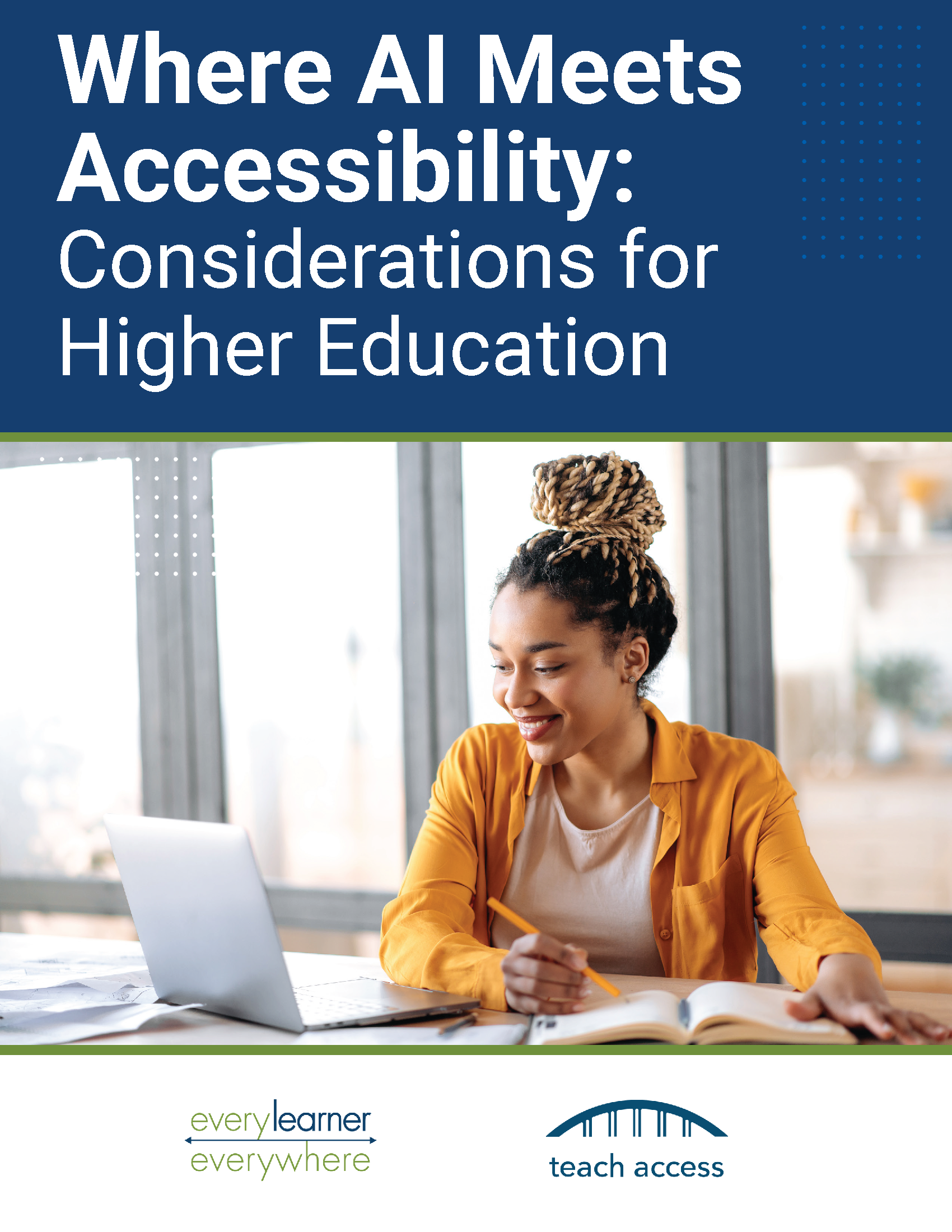
As AI becomes increasingly embedded into educational settings and practices, it offers both opportunities and challenges. This comprehensive resource will help navigate both aspects — demonstrating how AI can help overcome technology barriers, including various recommendations for integrating accessible AI across different areas of higher education.

In this report, we present survey results focused on use of culturally relevant instructional practices and culturally relevant course materials. Exploring the implications for practice and future research on culturally relevant content in postsecondary education and gateway courses.
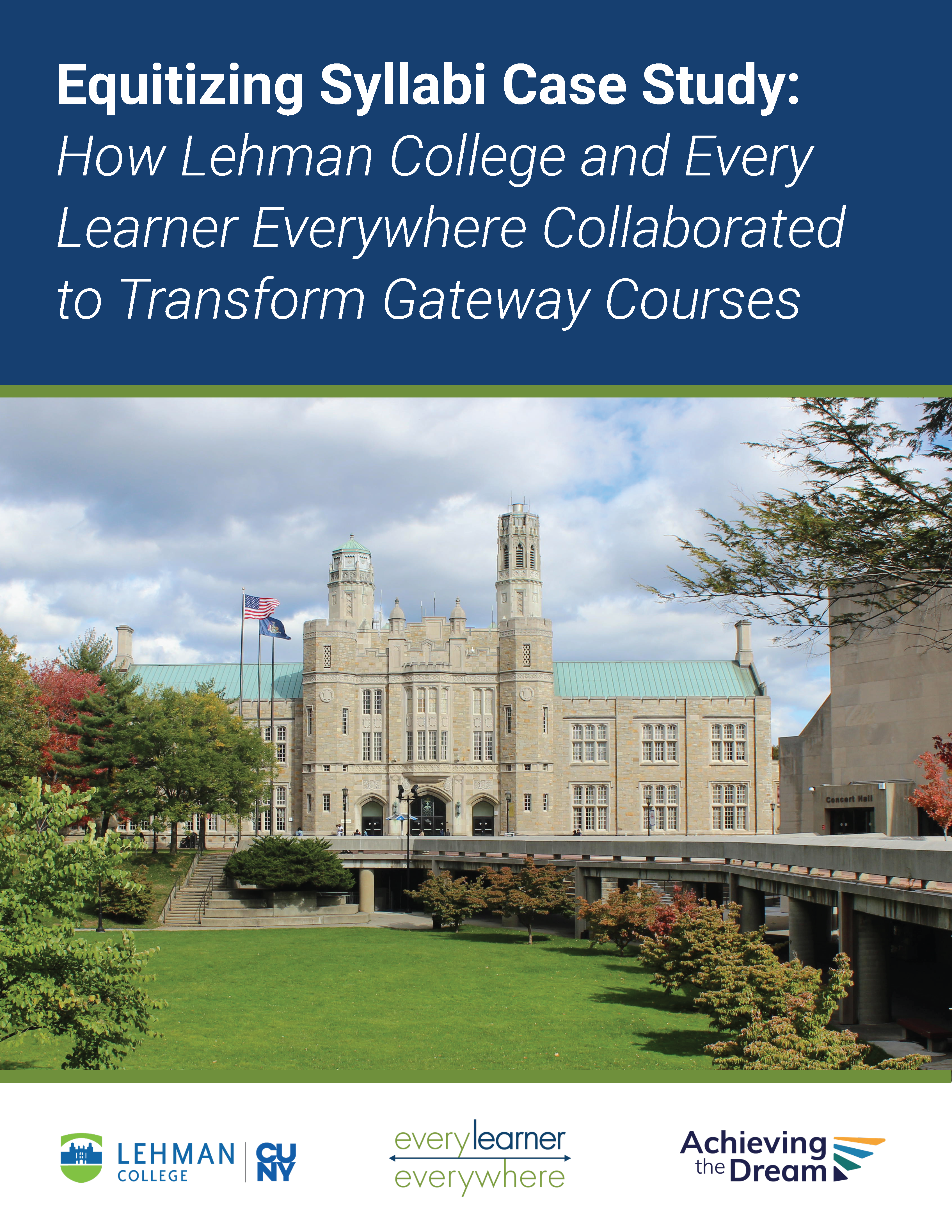
Faculty at New York City’s Lehman College participating in an intensive professional development project radically rewrote their syllabi and, indirectly, transformed their course design and teaching practices to put students at the center of learning.
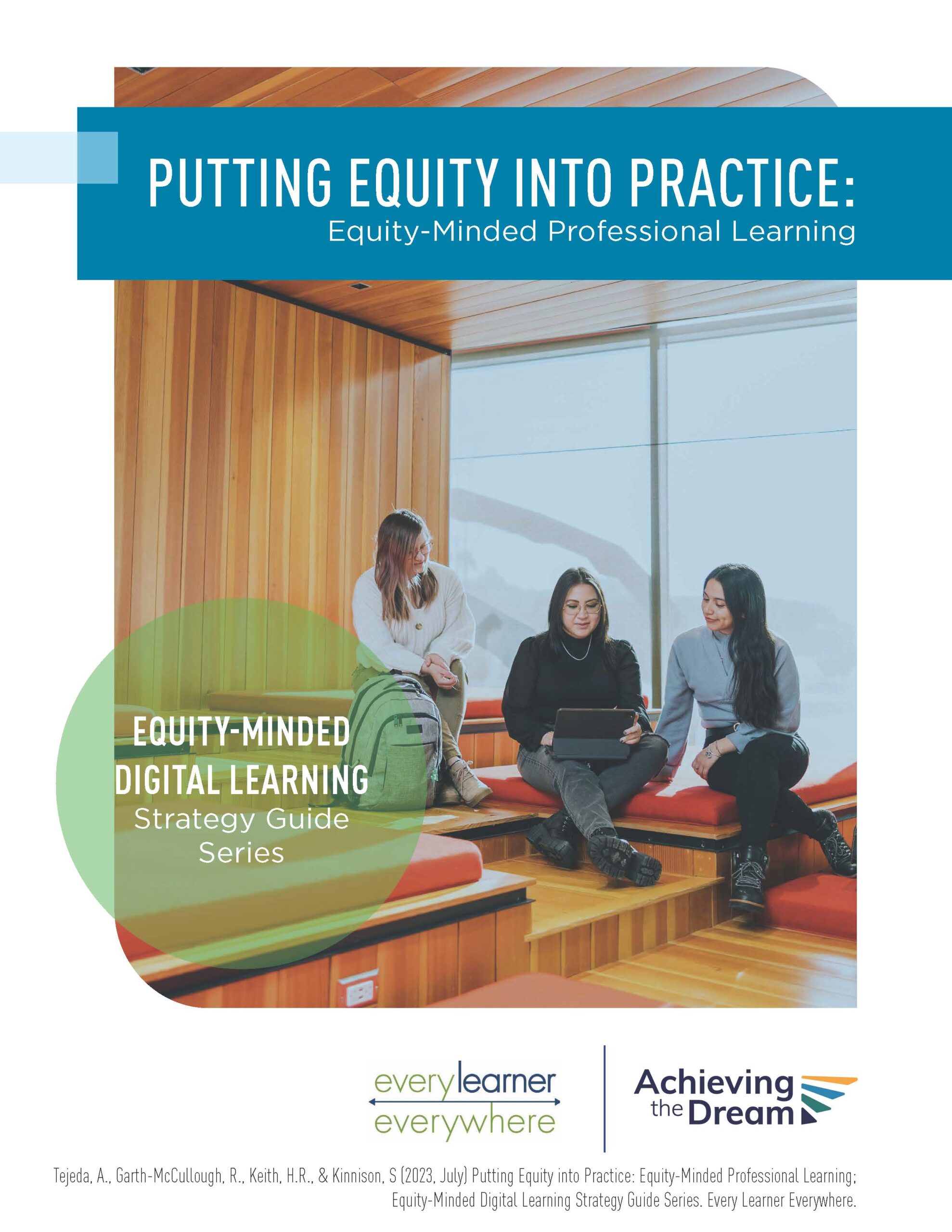
Through professional learning, faculty can develop their capacity to be change agents both inside and outside of the classroom. This guide clarifies what it means to create opportunities for professional learning that are explicitly equity-minded.
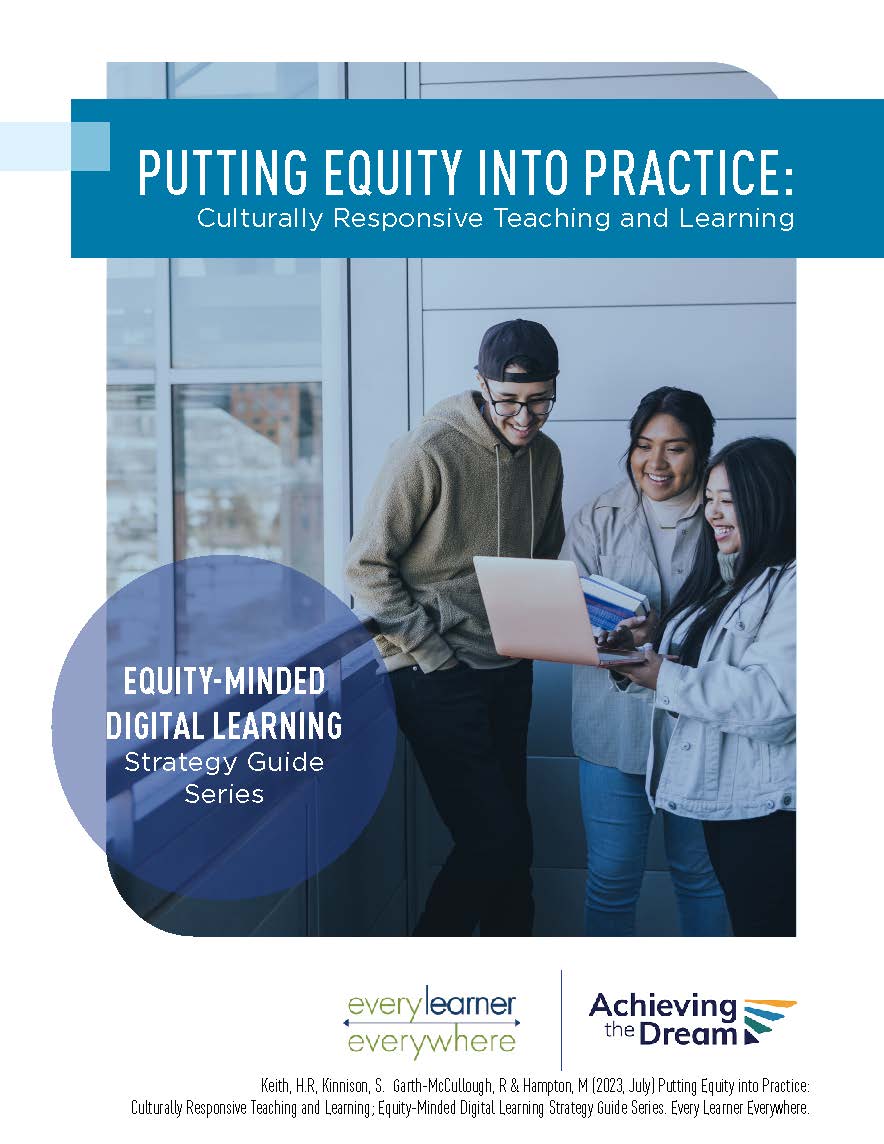
Culturally responsive pedagogy is a framework that is inclusive of culturally responsive and relevant teaching, and culturally affirming and sustaining instructional methodologies that validate and engage students’ cultural identities. These practical instructional strategies and practices guide the implementation of culturally responsive teaching and learning into educational spaces.
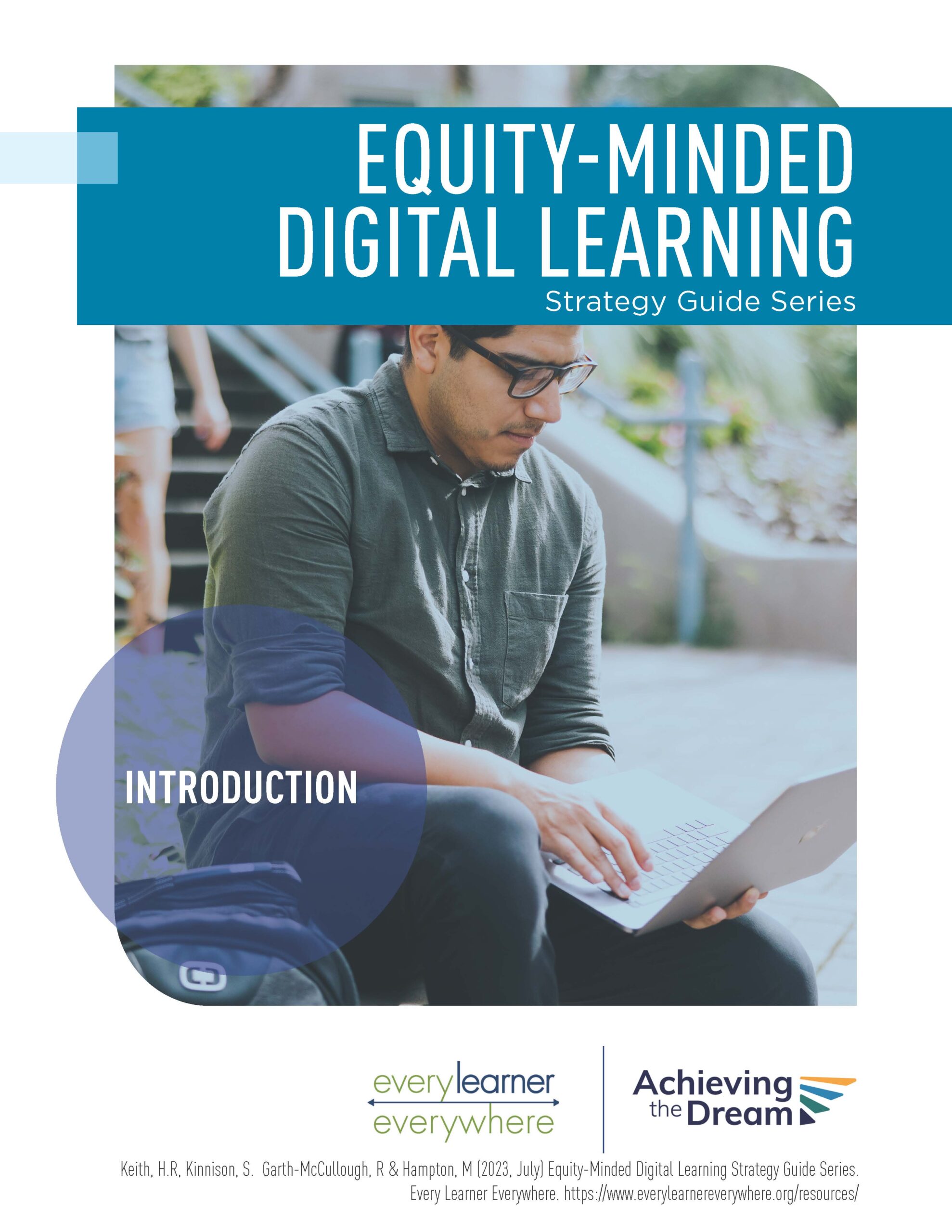
The Equity-Minded Digital Learning Strategy Guides help faculty intentionally and authentically affirm, uplift, and liberate students. As higher education continues to address eliminating inequitable outcomes in teaching and learning, these guides will help institutions embed equity, culturally responsive teaching, social justice education, and open pedagogy through evidence-based teaching practices.
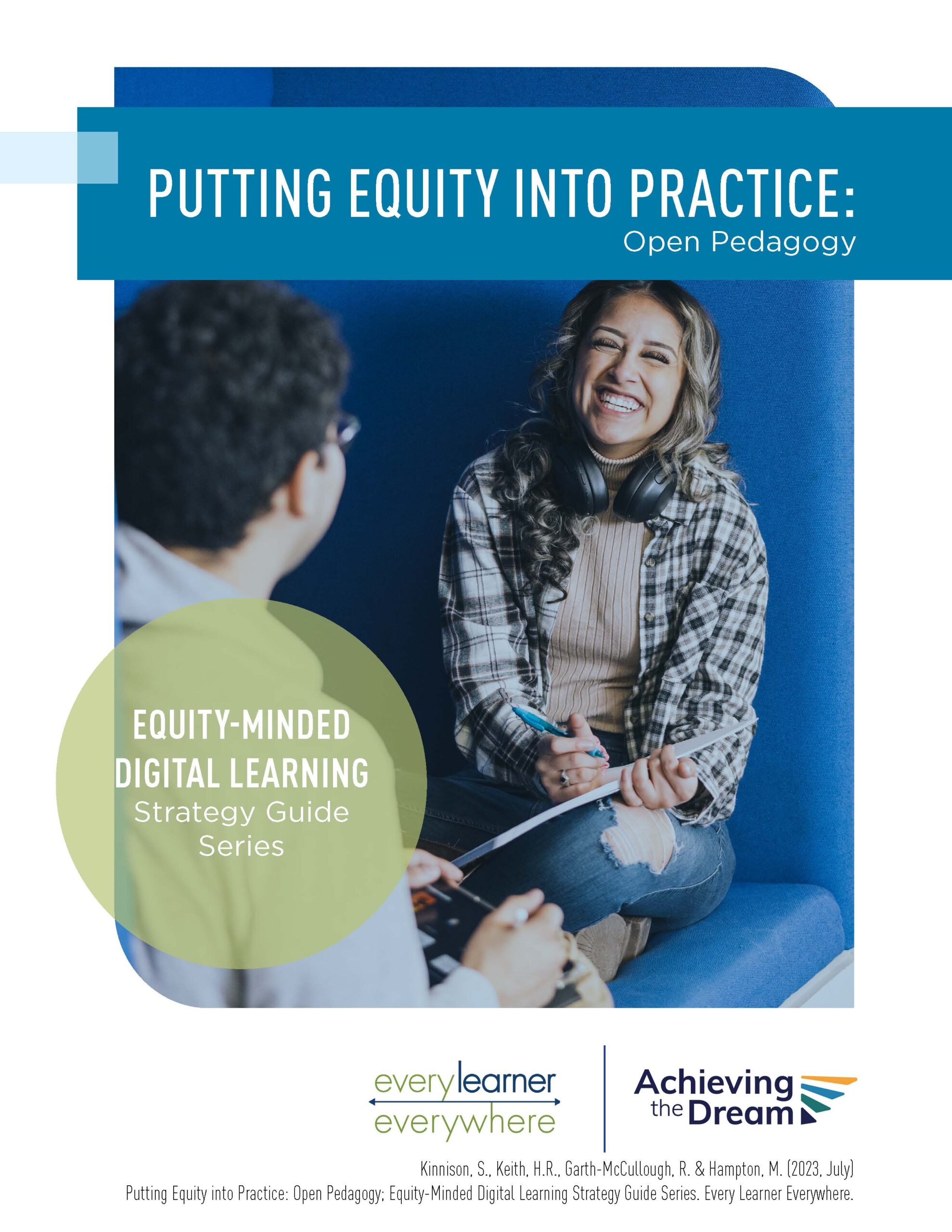
Being able to choose course design, content, assignments, assessments, and instructional approaches based on the context of the learners and the current events of the times allows students to relate all areas of the course to their lives and equitizes their experiences and outcomes. This guide is designed to support faculty with operationalizing open pedagogy through a culturally responsive lens.
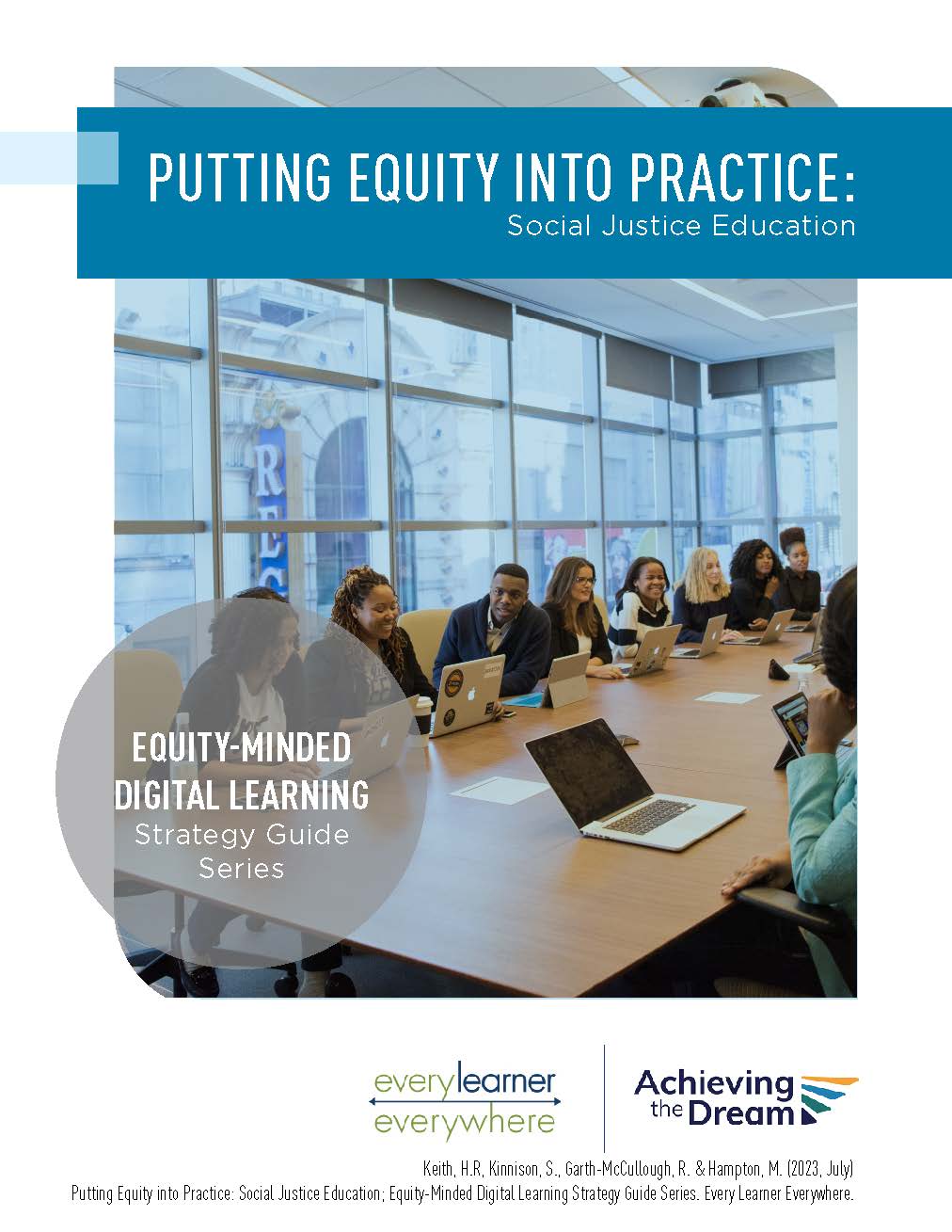
Advancing social justice in education requires establishing educational spaces that foster students’ critical consciousness and ability to analyze systems, policies, and practices that lead to inequitable and unjust experiences and outcomes. A social justice approach to education involves two strategies that will be featured in this guide: anti-racist teaching and abolitionist teaching.
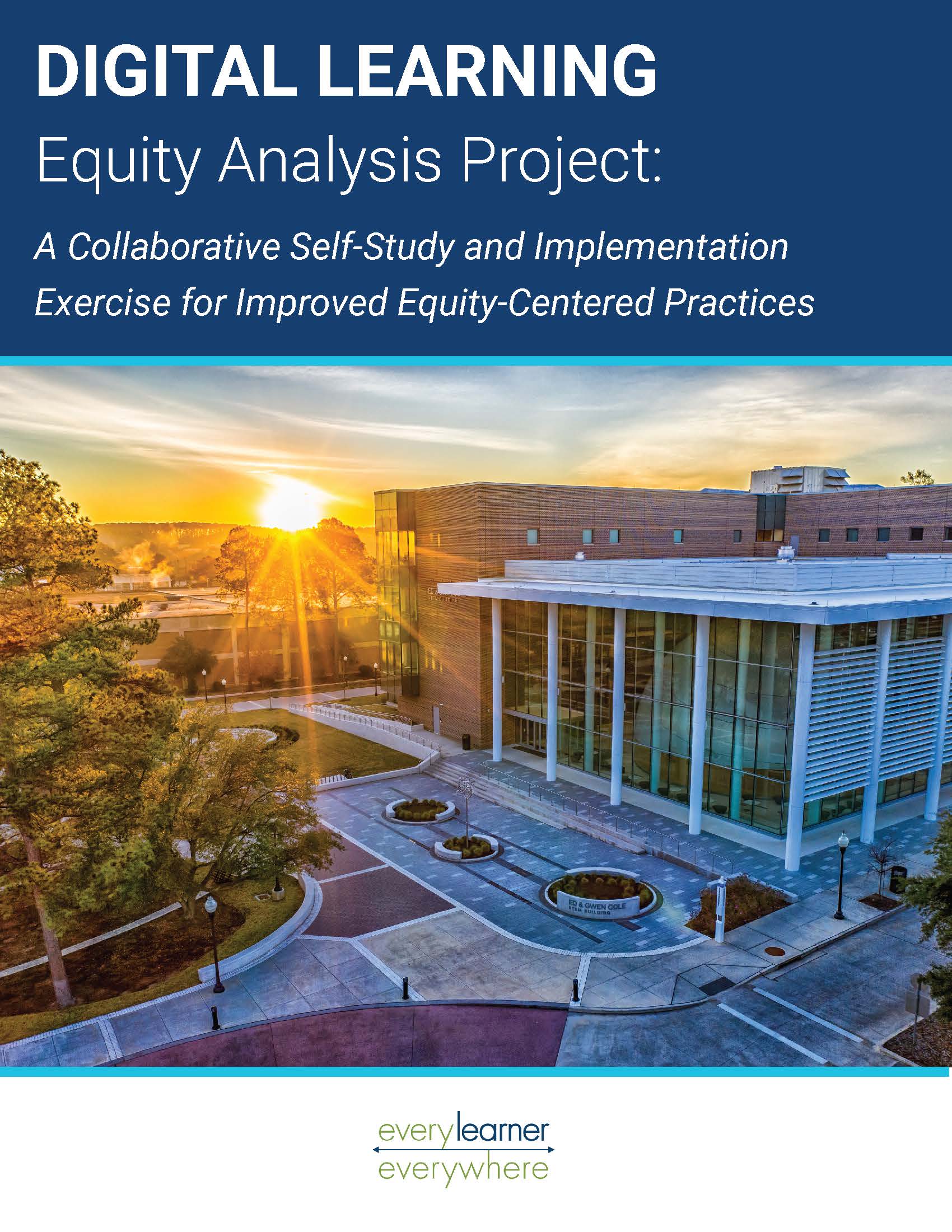
This paper describes the outcomes of a Digital Learning Equity Analysis project undertaken by two award-winning educators, Sarah Straub and Rachel Jumper, who sought to implement suggestions from the microcredential training hosted by Every Learner Everywhere. This training focused on promoting equity in digital learning and provided a structured protocol for conducting reviews of online courses.
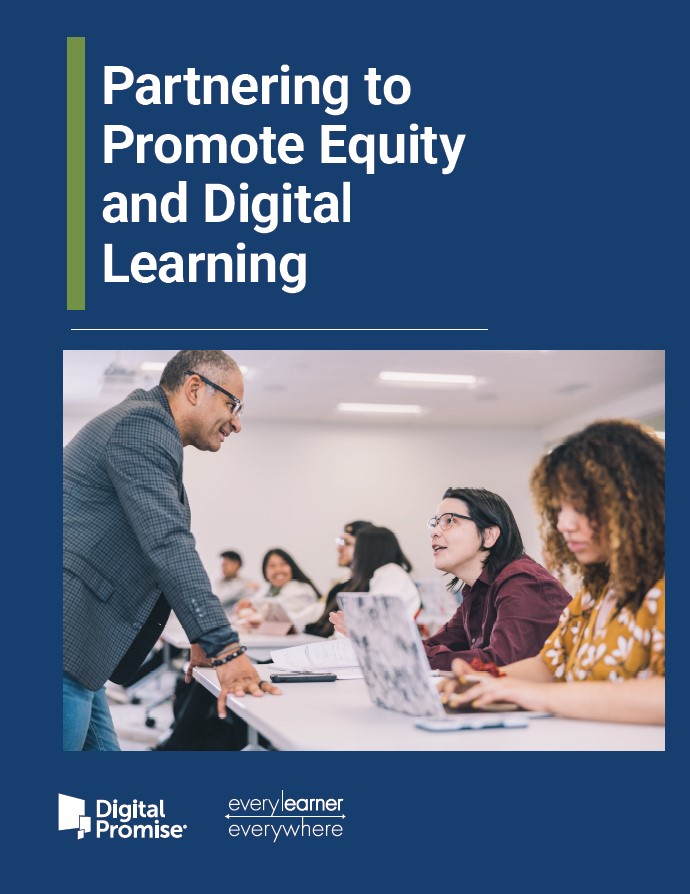
The report describes the key features of research-practice partnerships between colleges and Every Learner Everywhere partner organizations.
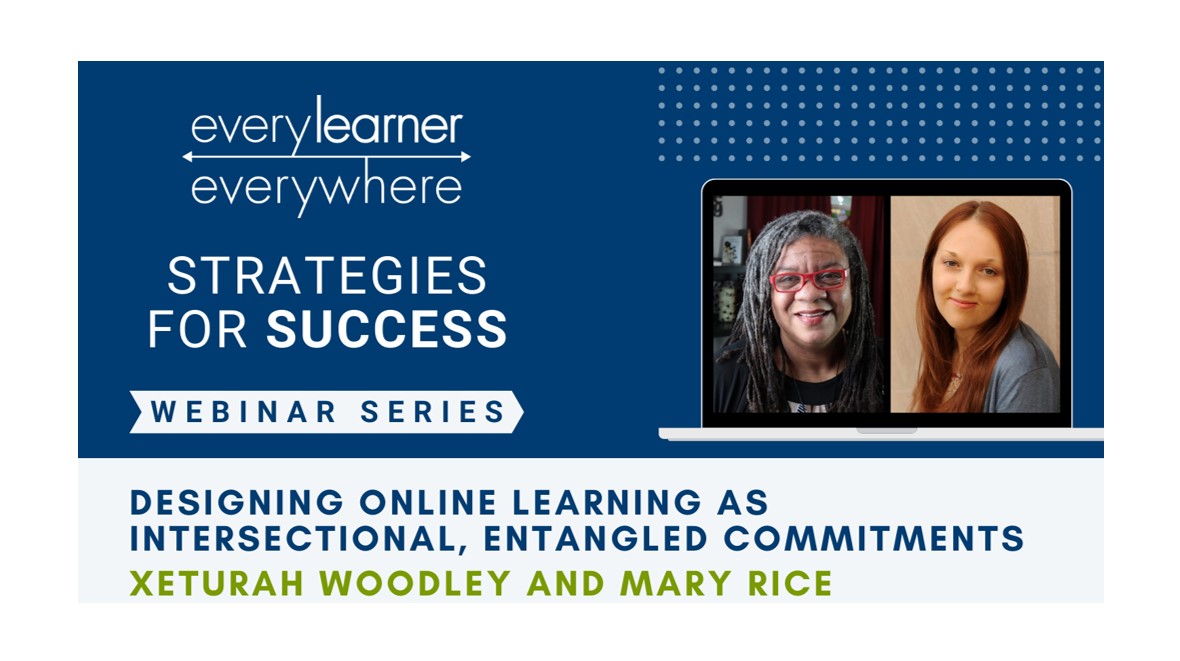
Dr. Mary Rice and Dr. Xeturah Woodley engage in a conversation about the renewal that emerges alongside intersectional online course design.
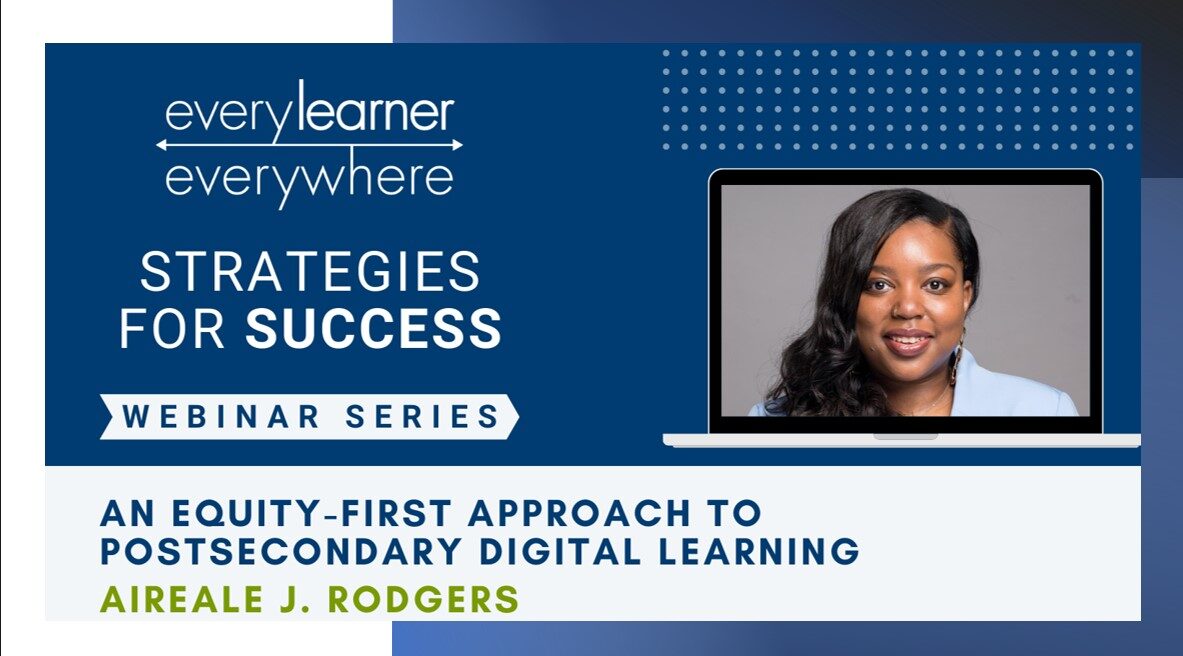
Dr. Aireale Rodgers introduces the Equity First Framework for Digital Learning: a tool to support equitable and just student learning.
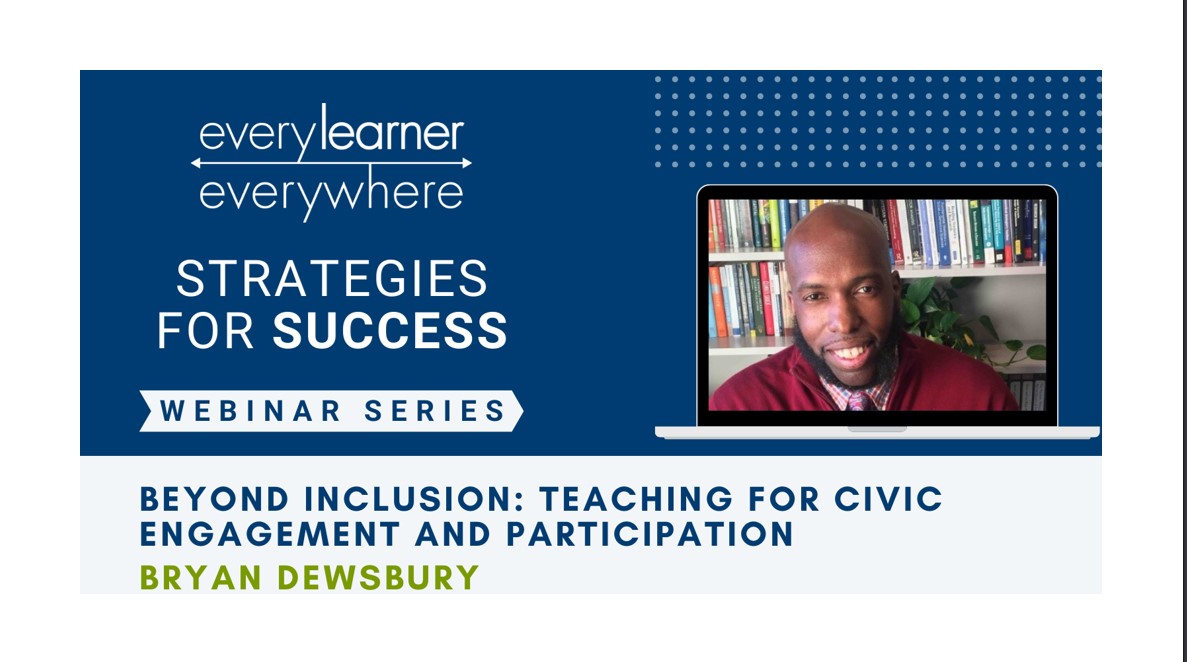
Dr. Bryan Dewsbury discusses reconnecting classroom practice with the values, behaviors and mindsets needed for a socially just society.
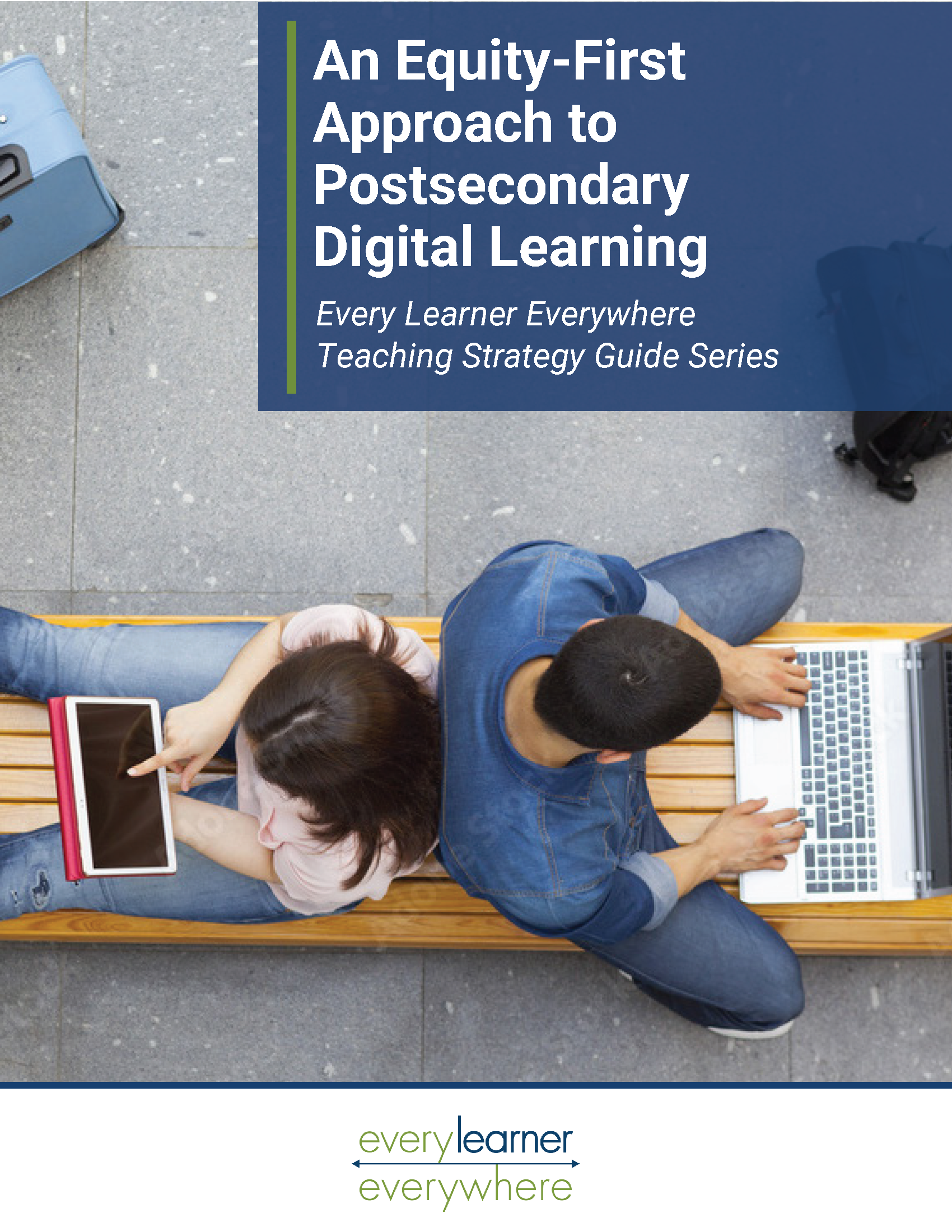
This guide outlines necessary components to adopting and utilizing digital learning tools equitably for postsecondary digital learning.
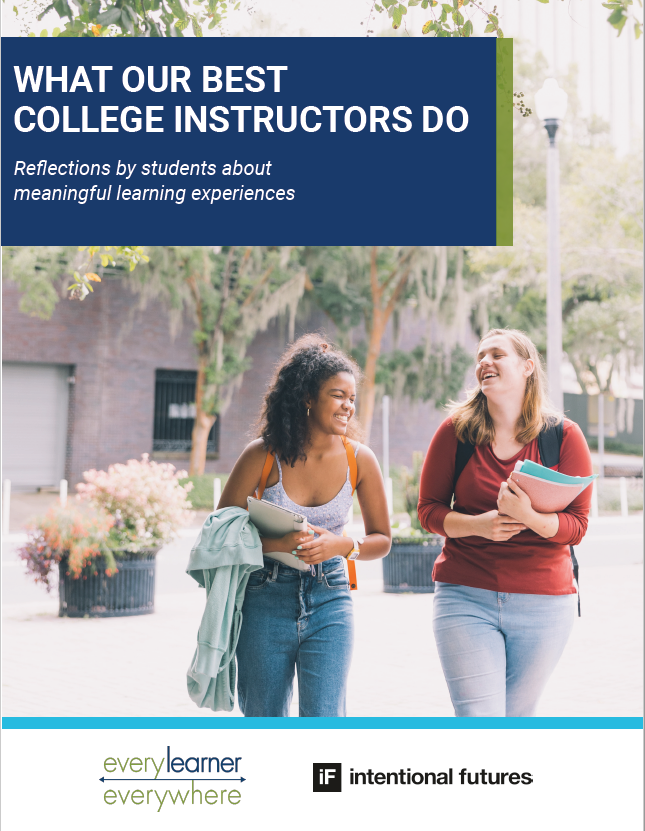
A resource about meaningful learning experiences written by college students for faculty.
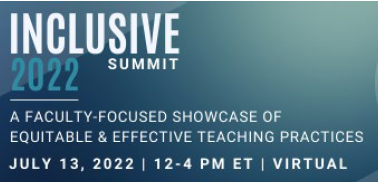
Instructional design experts providestrategies that faculty can use in their classrooms today to connect with and engage their students.
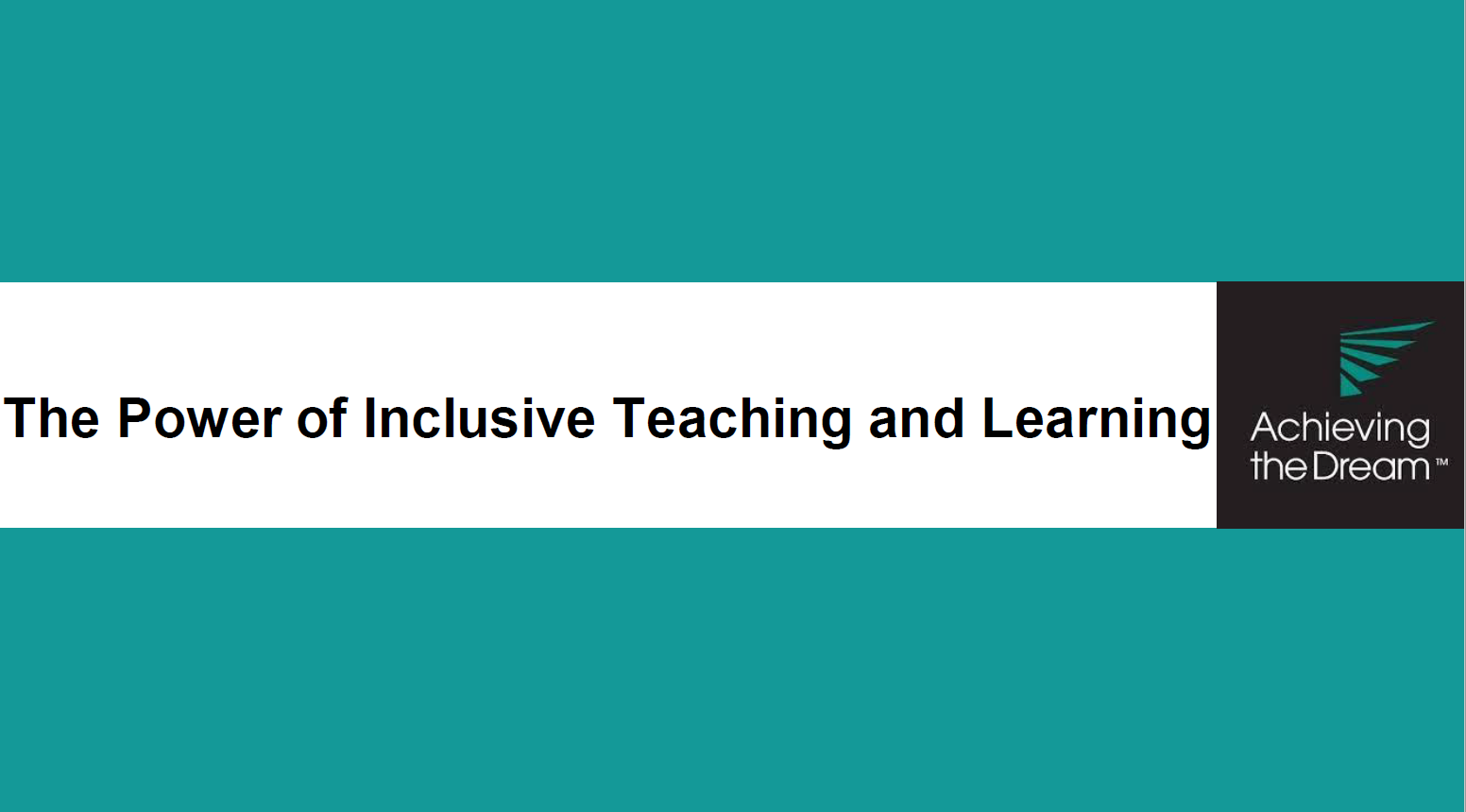
Teaching specialists from Achieving the Dream share strategies for Culturally responsive teaching, Anti-racist teaching, Abolitionist teaching, and Open Pedagogy.
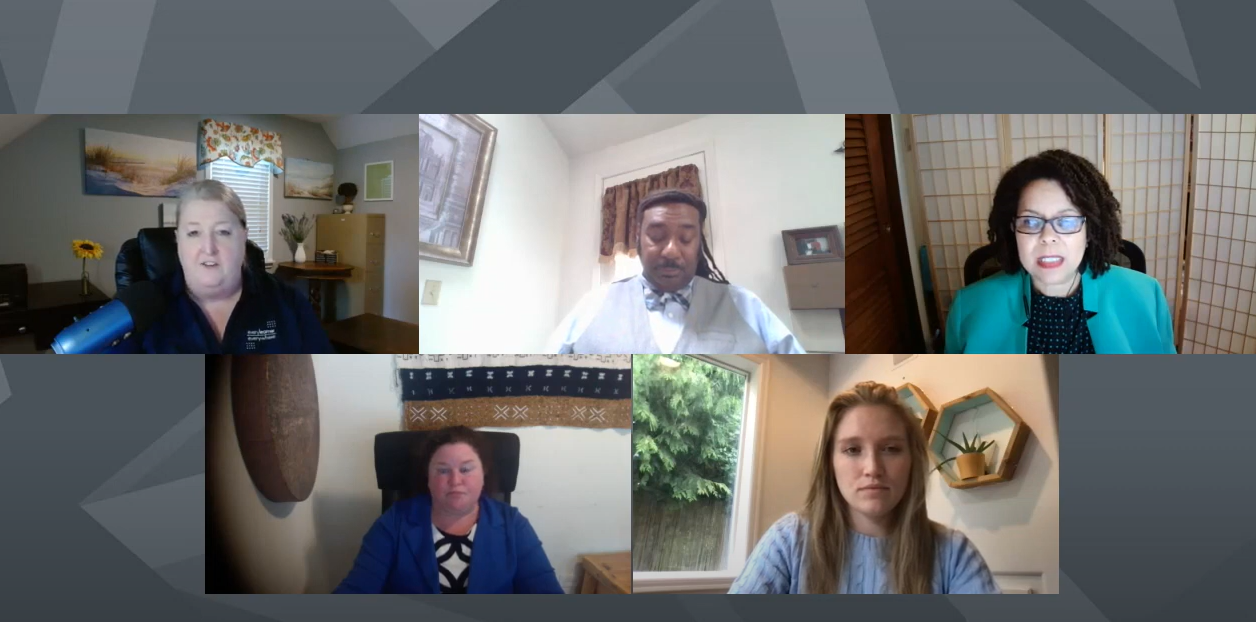
Specialists and practitioners of inclusive teaching answer your questions about strategies and approaches to creating an inclusive learning environment for all students.
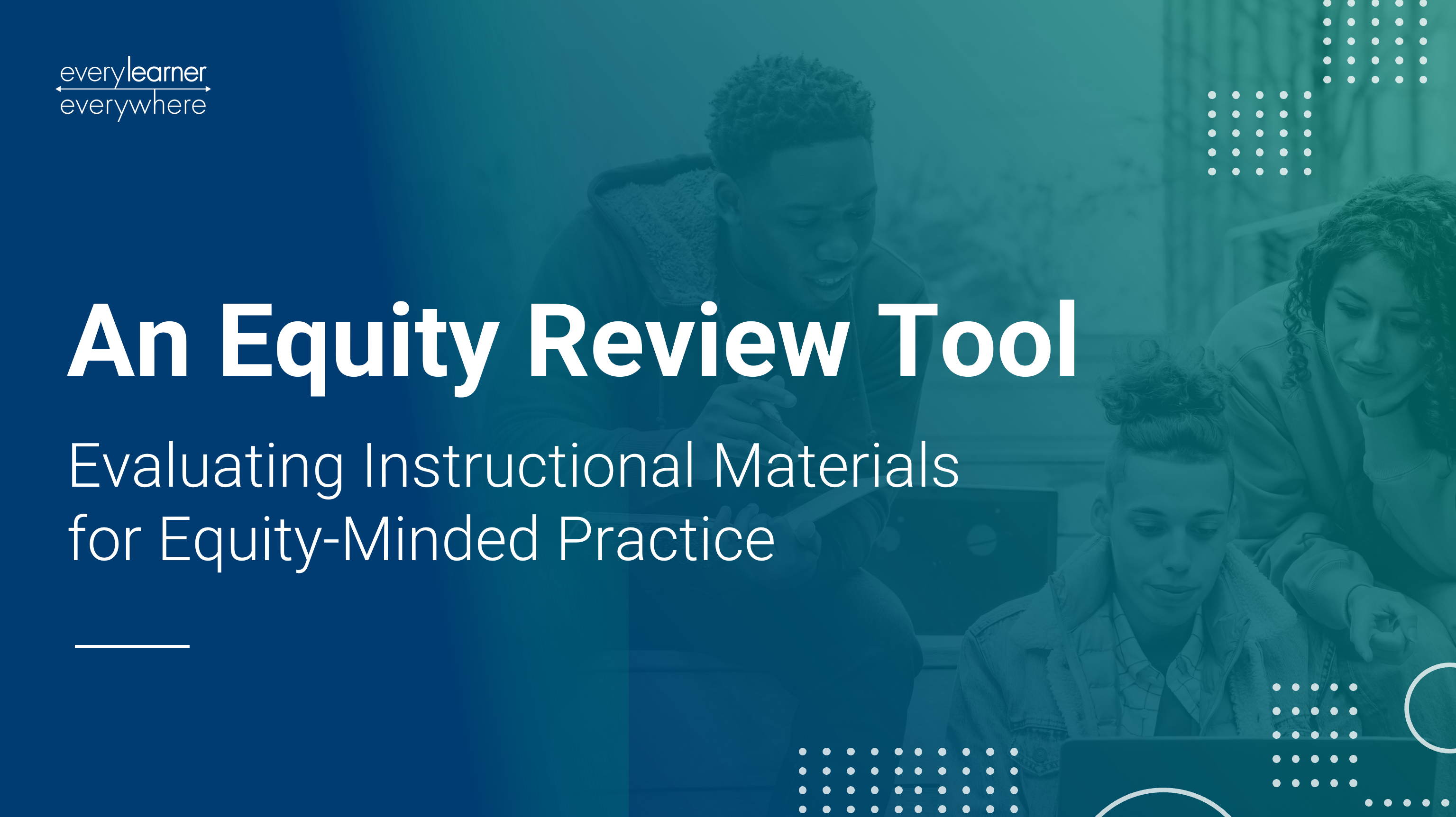
Developers of the Equity Evaluation Tool walk through the evaluation process to show how you can use it to make your course content equity-centered.
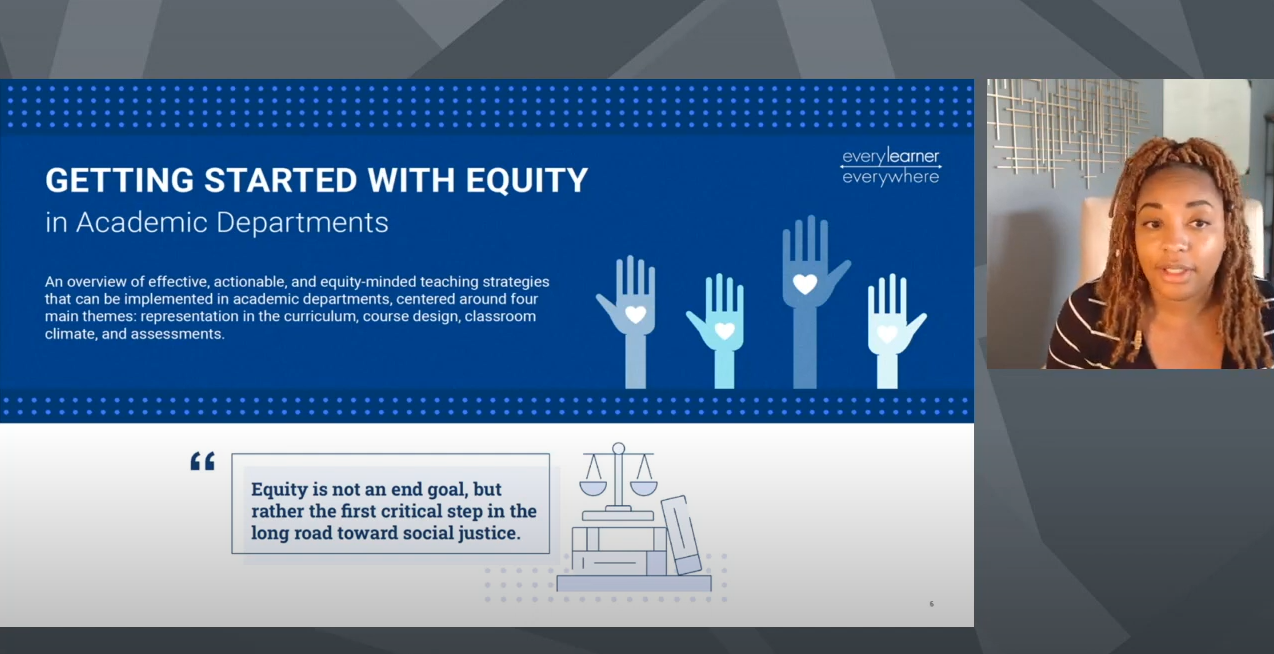
Jessica Rowland Williams talks about various tools and strategies for transforming a department to be more equitable.
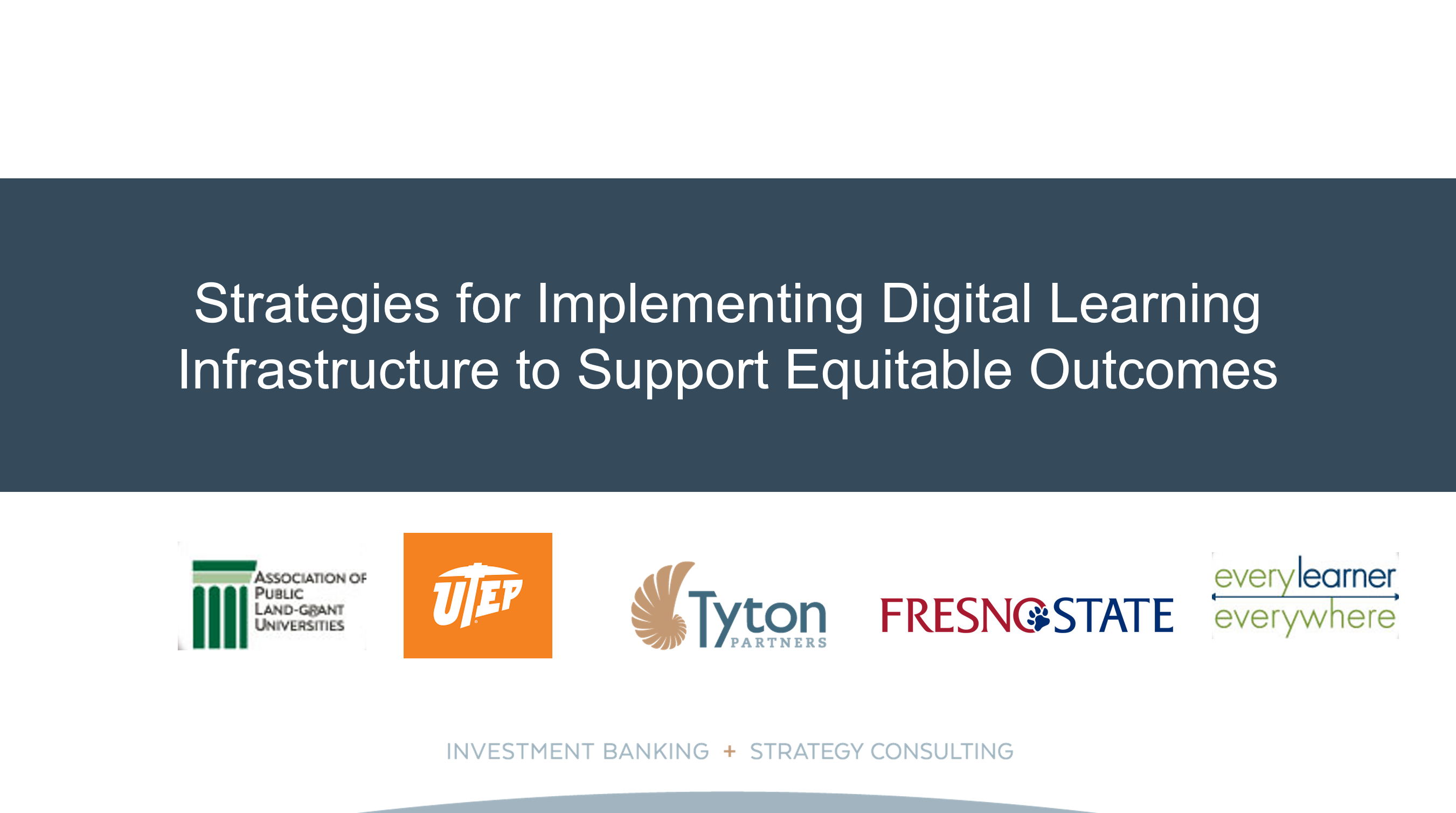
Representatives from institutions that implemented digital learning discuss how these technologies improved student success in lower level courses.
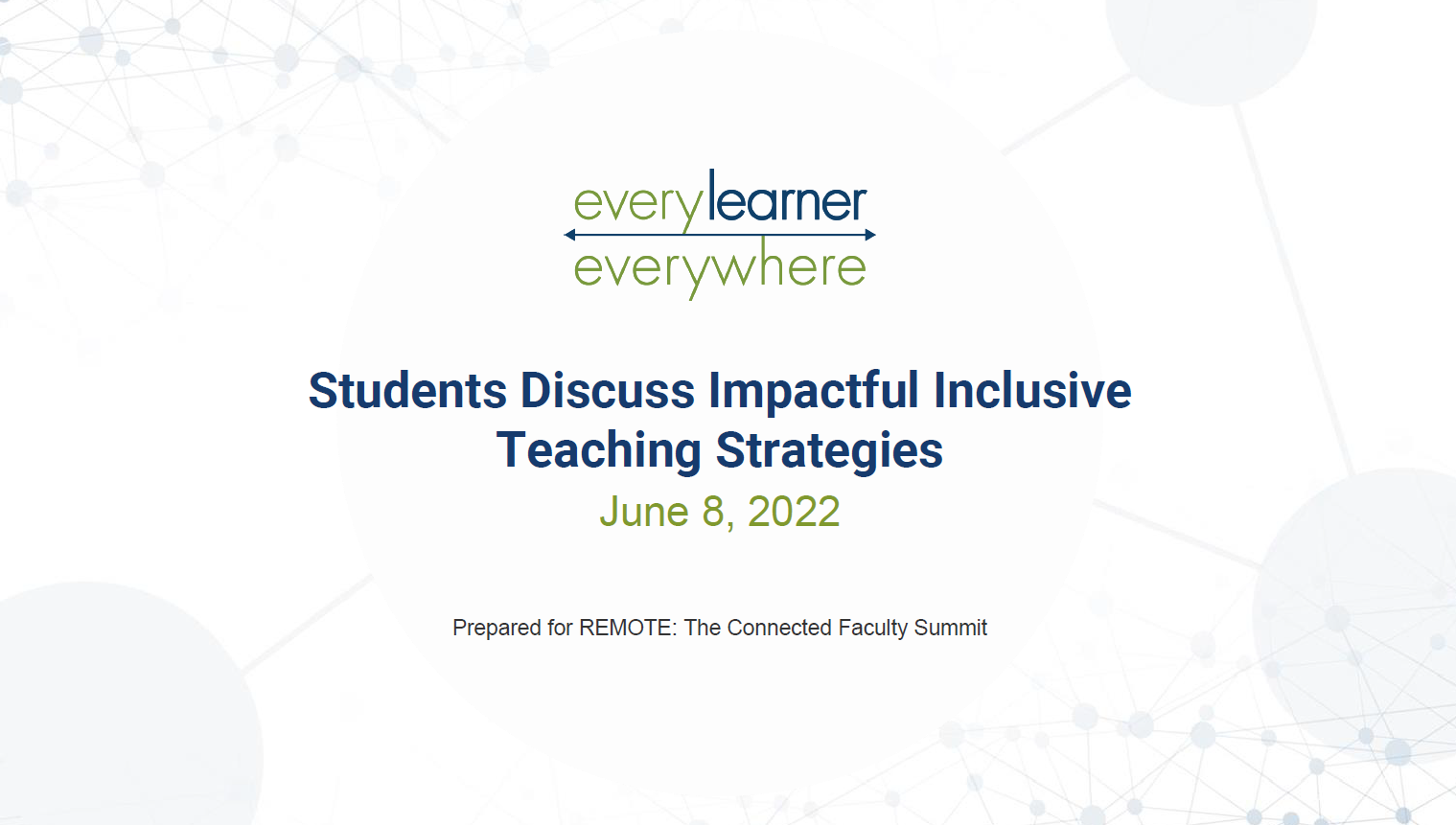
Undergraduate students to discuss what inclusive teaching strategies have been most impactful in their college experience.
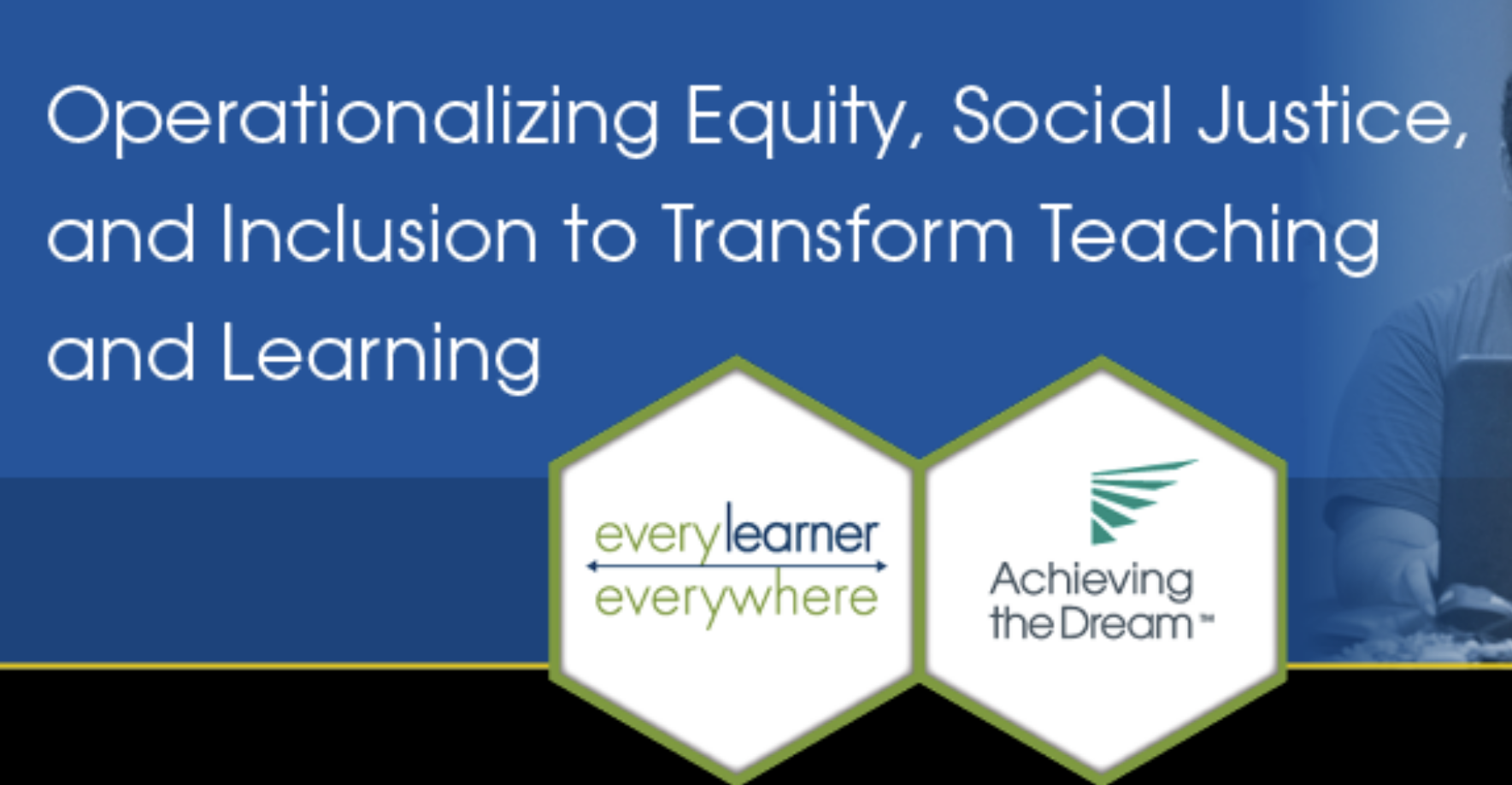
In this webinar, participants engage in dialogue and discourse with panelists about co-creating environments that support and humanize students’ academic experiences while affirming their strengths and potential in the classroom.
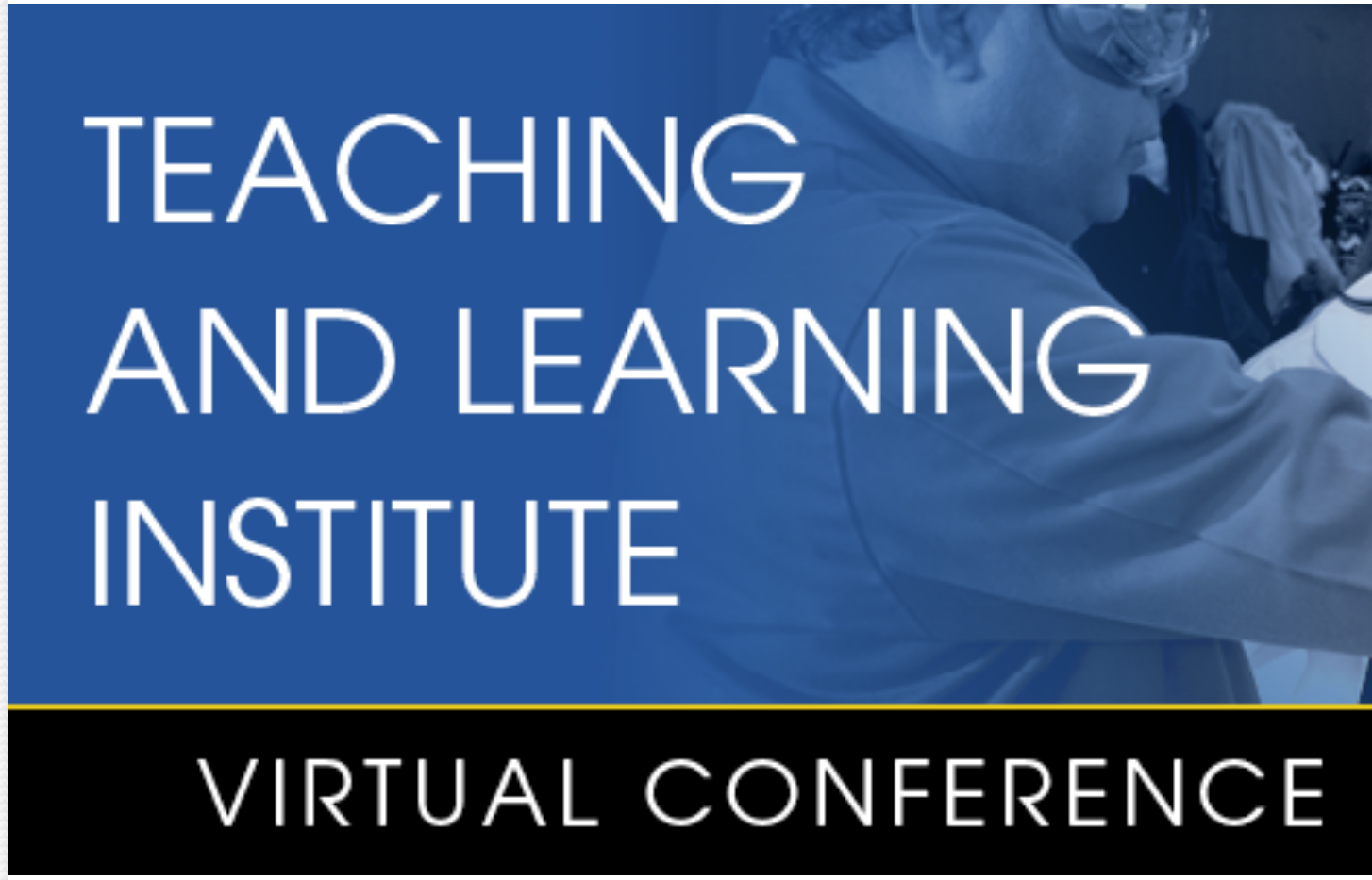
Faculty development leaders share their strategies for shifting the framework in ways that advance equitable student learning experiences.

The Equity Review Tool guides educators to interrogate their practices and reflect on equitable language usage and employ strategies to support a more equitable teaching and learning process.
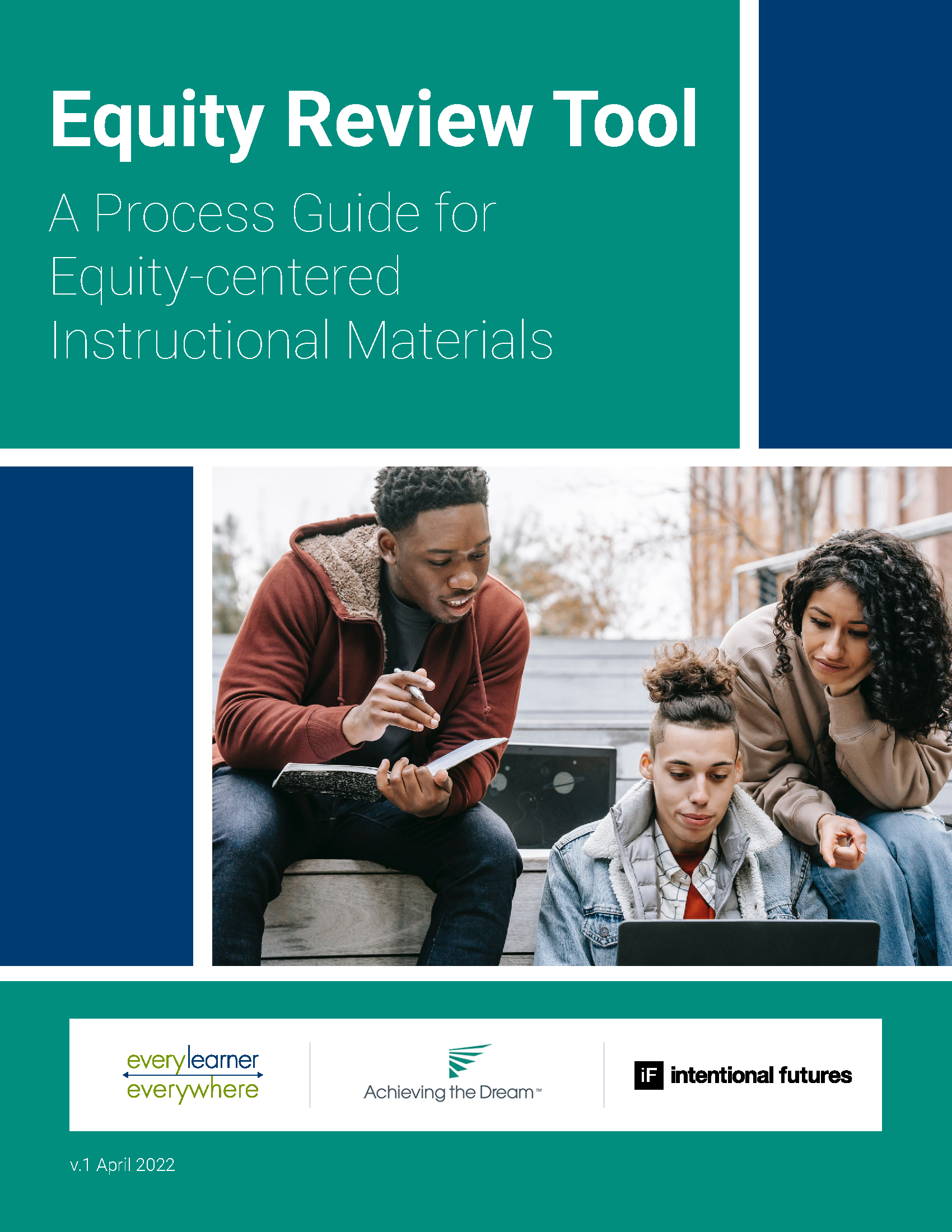
The equity review tool is designed for educators striving to create more validating and affirming learning experiences and environments for students. Using this tool, educators will be able to develop and evaluate their resources and the language they use to ensure they are asset-based and supportive of a more equitable teaching and learning process.

Three students who are ATD fellows share their first-hand accounts of culturally responsive teaching practices and the impact on their learning experiences.

Presenters share their experiences in developing course curriculum, assignments, and content that validate, affirm, and embrace the diverse perspectives, lived experiences and cultures of the student they serve.

This workshop provides examples of successful innovative and digital assessment approaches that center students and allow for authentic and culturally responsive measurement of student learning.
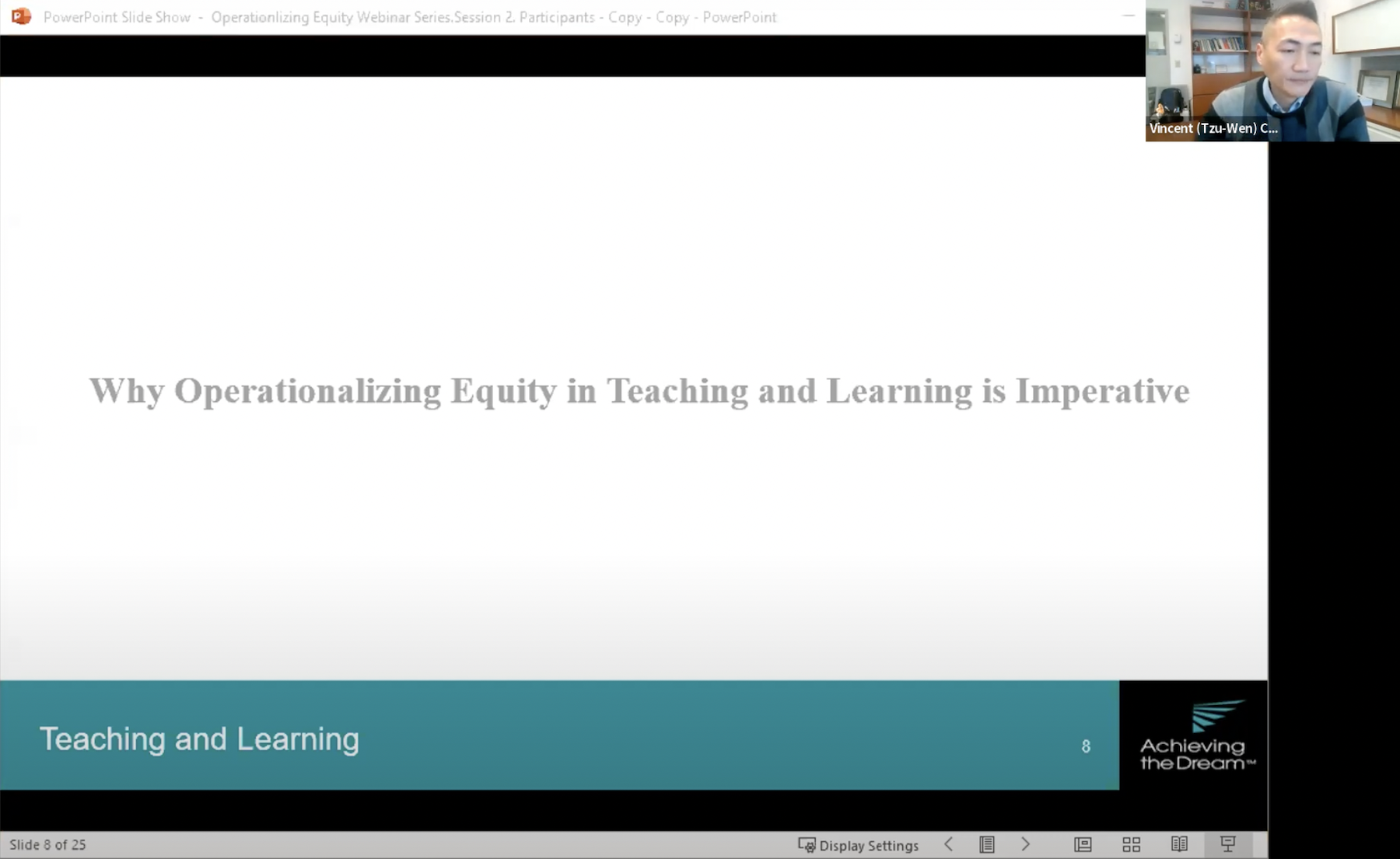
Panelists share tenets to purposefully embed equity, social justice, and inclusion into innovative teaching and learning in face-to-face and virtual spaces.
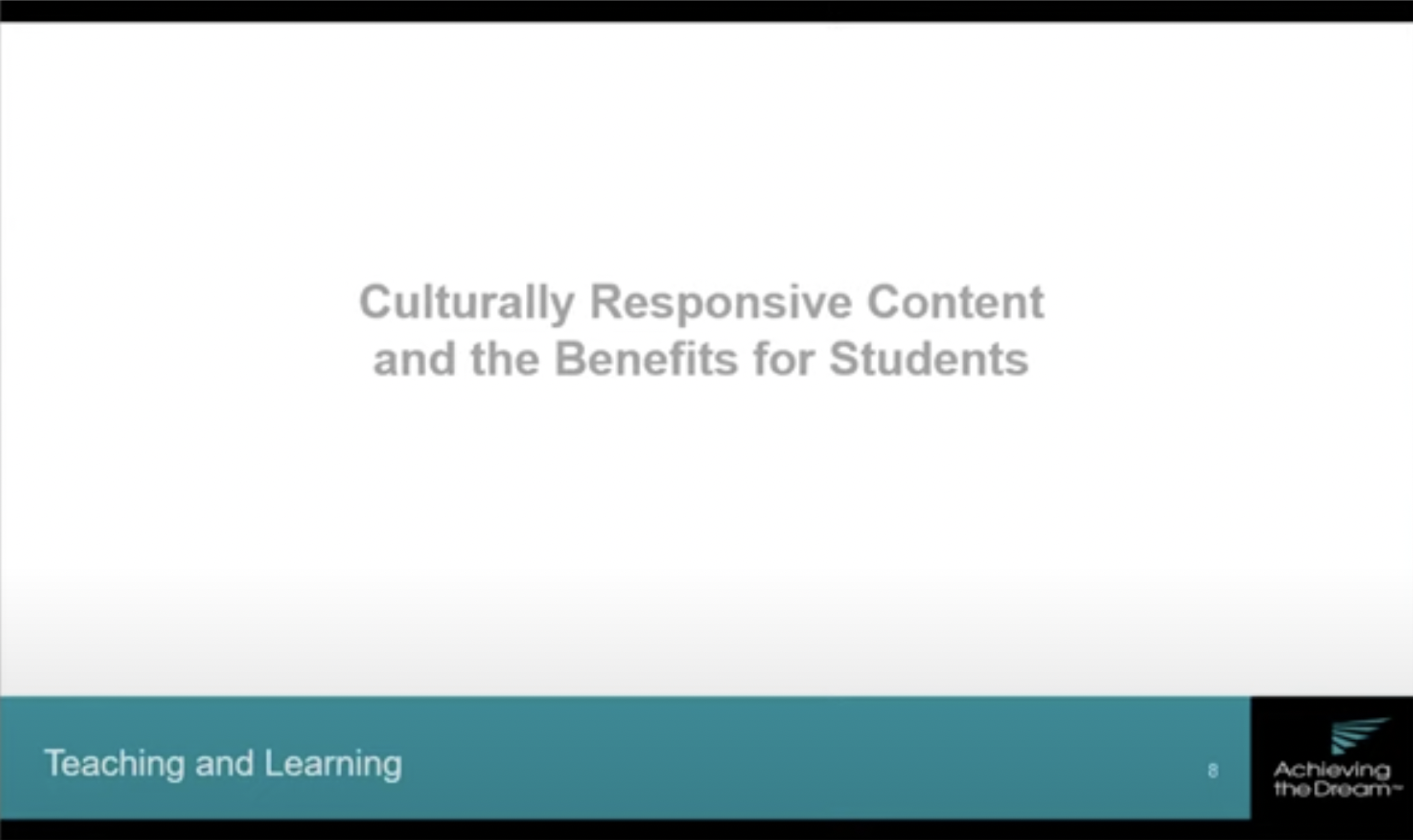
This webinar explores how to develop and design course content that is inclusive of diverse students, perspectives, cultures, and lived experiences.
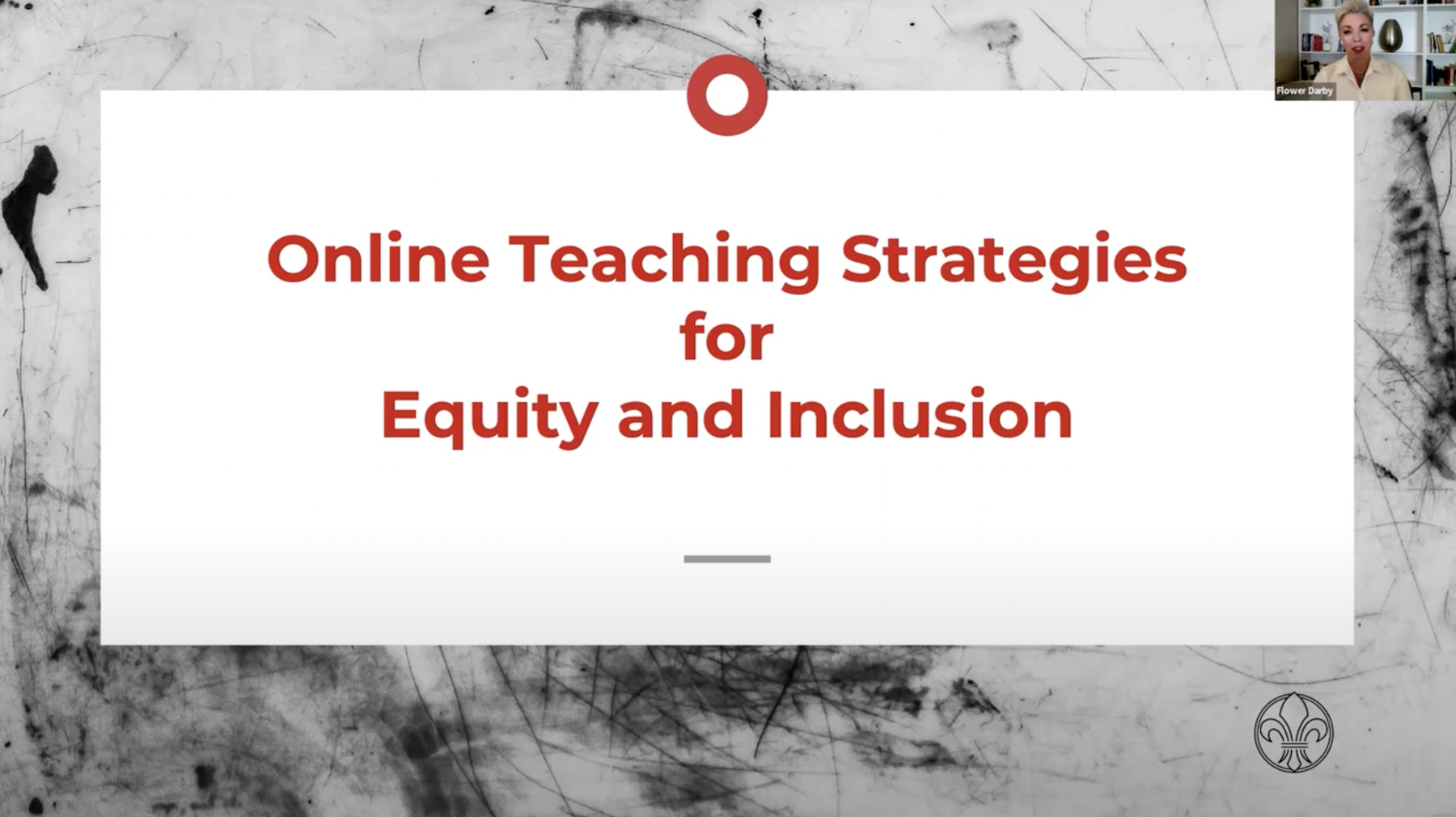
Evidence-based frameworks to welcome and support all students, regardless of their background, abilities, identities, needs, or preferences.
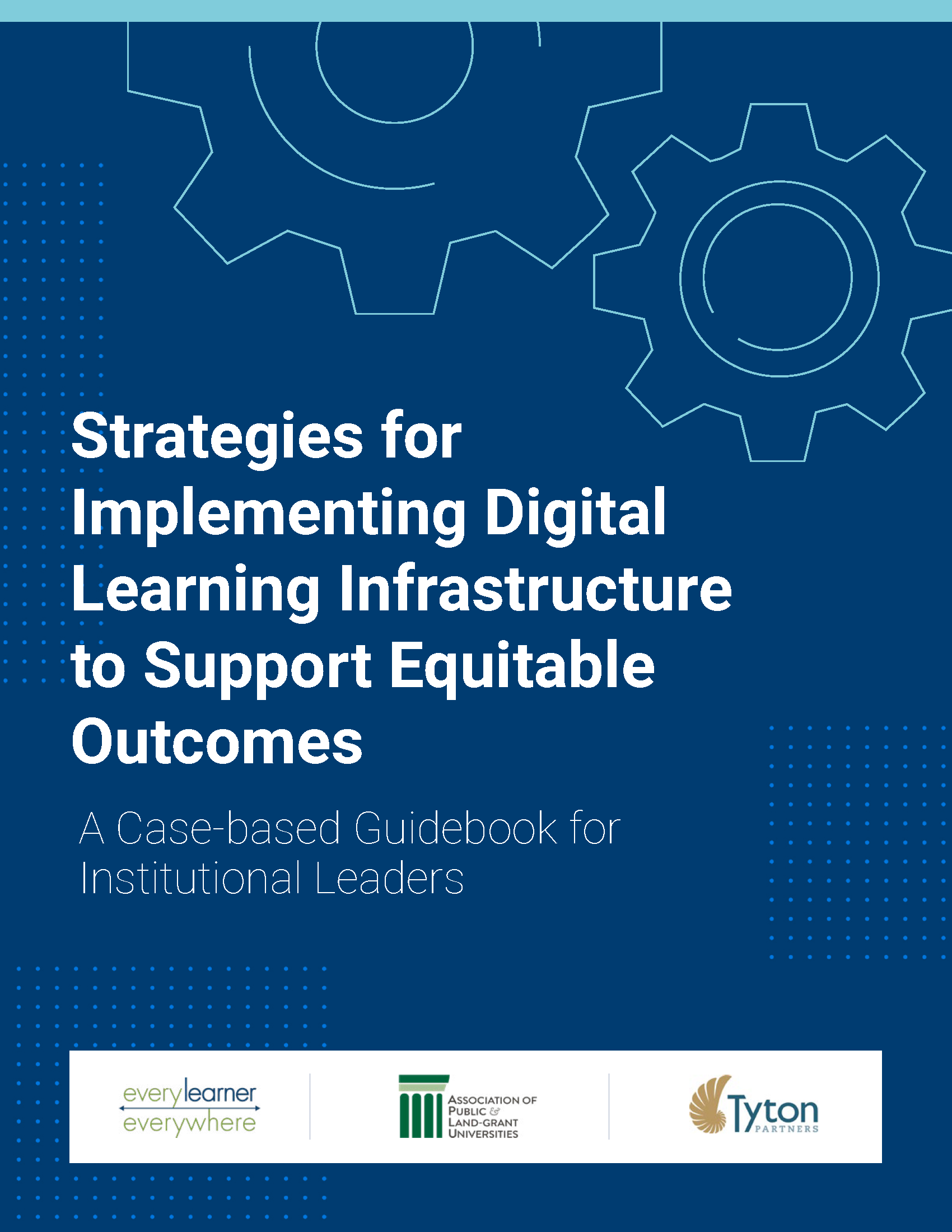
This report focuses on building the core infrastructure needed for high-quality digital learning and is designed primarily for a mid- to senior-level academic administrators including department chairs, leaders of centers of teaching and learning, technology leaders, and academic leadership.
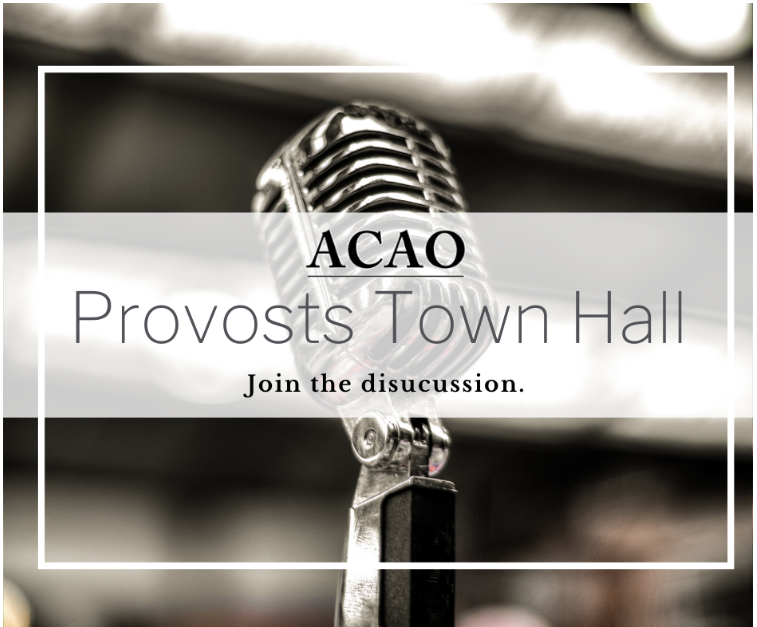
In this town hall, learn how to develop an anti-racist analytical framework, based on an anti-racist growth mindset.
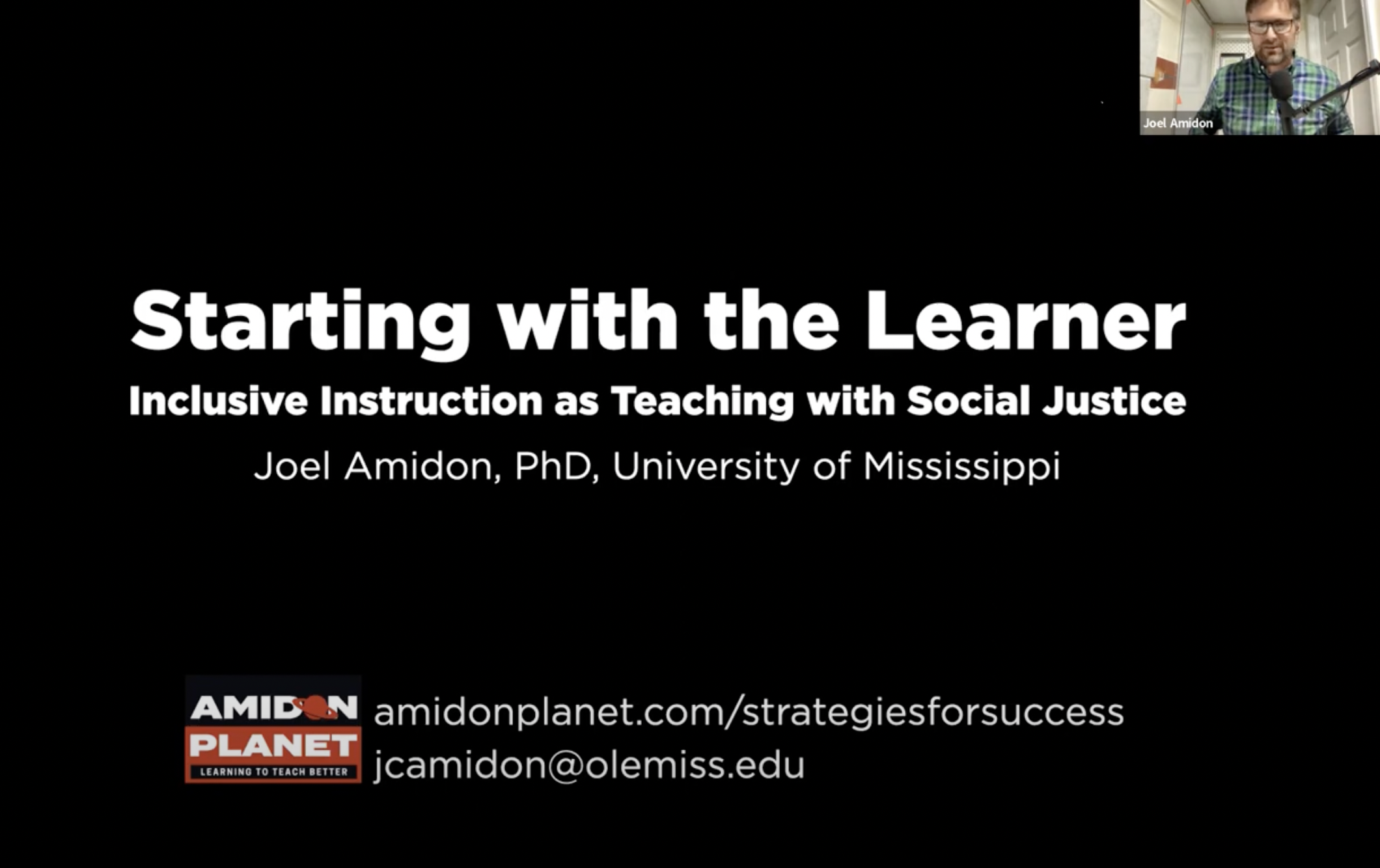
Participants consider how to make instructional design decisions that provide an inclusive learning environment.
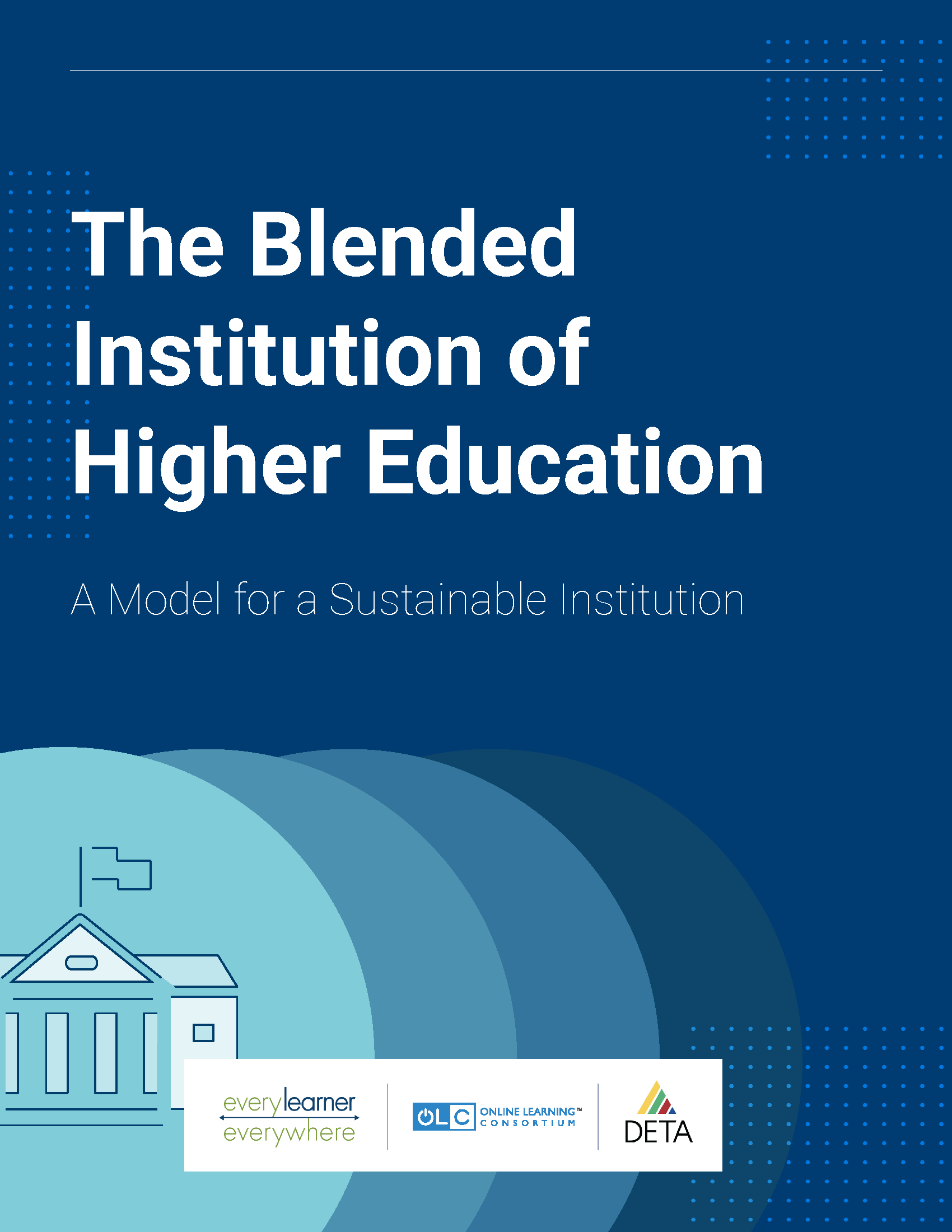
This guide is meant to support leaders as they transition from managing reactively to leading strategically and offers leaders a sustainable institutional model that centers on student equity and success.
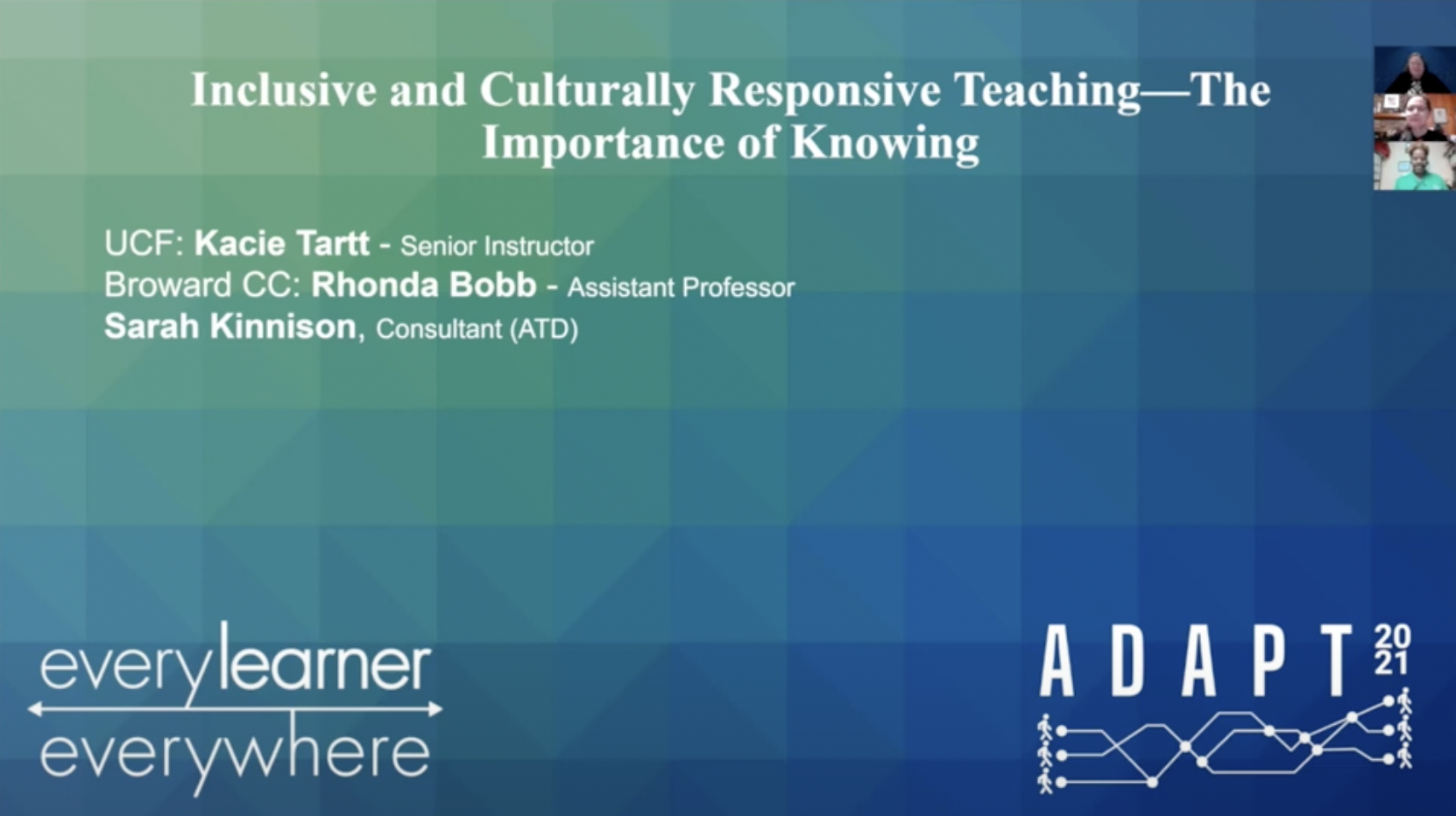
Faculty describe inclusive teaching strategies, alongside digital tools, to help connect the content to the student in meaningful and lasting ways.
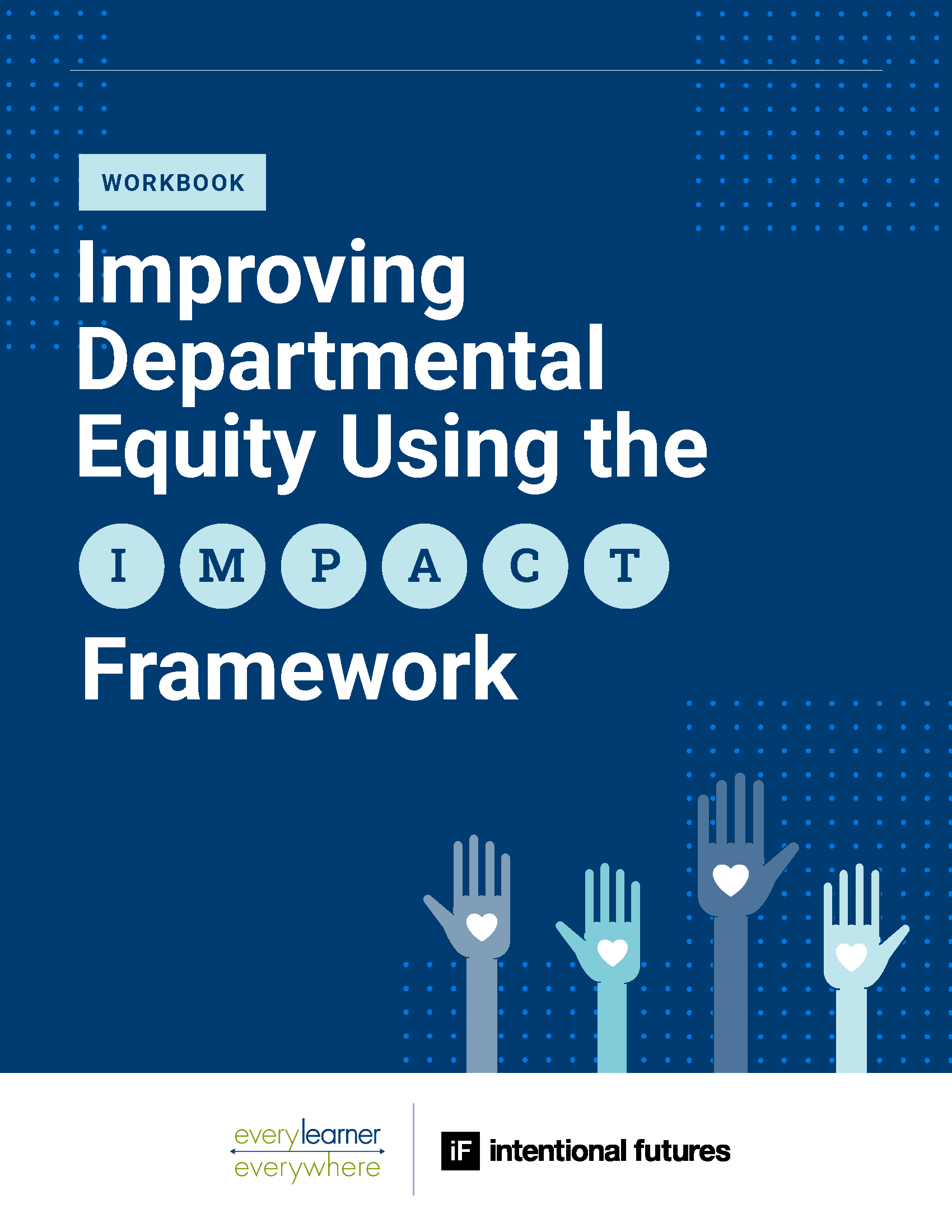
This resources includes instructions and worksheets to redress racism perpetuated by academic departmental policies and practices.
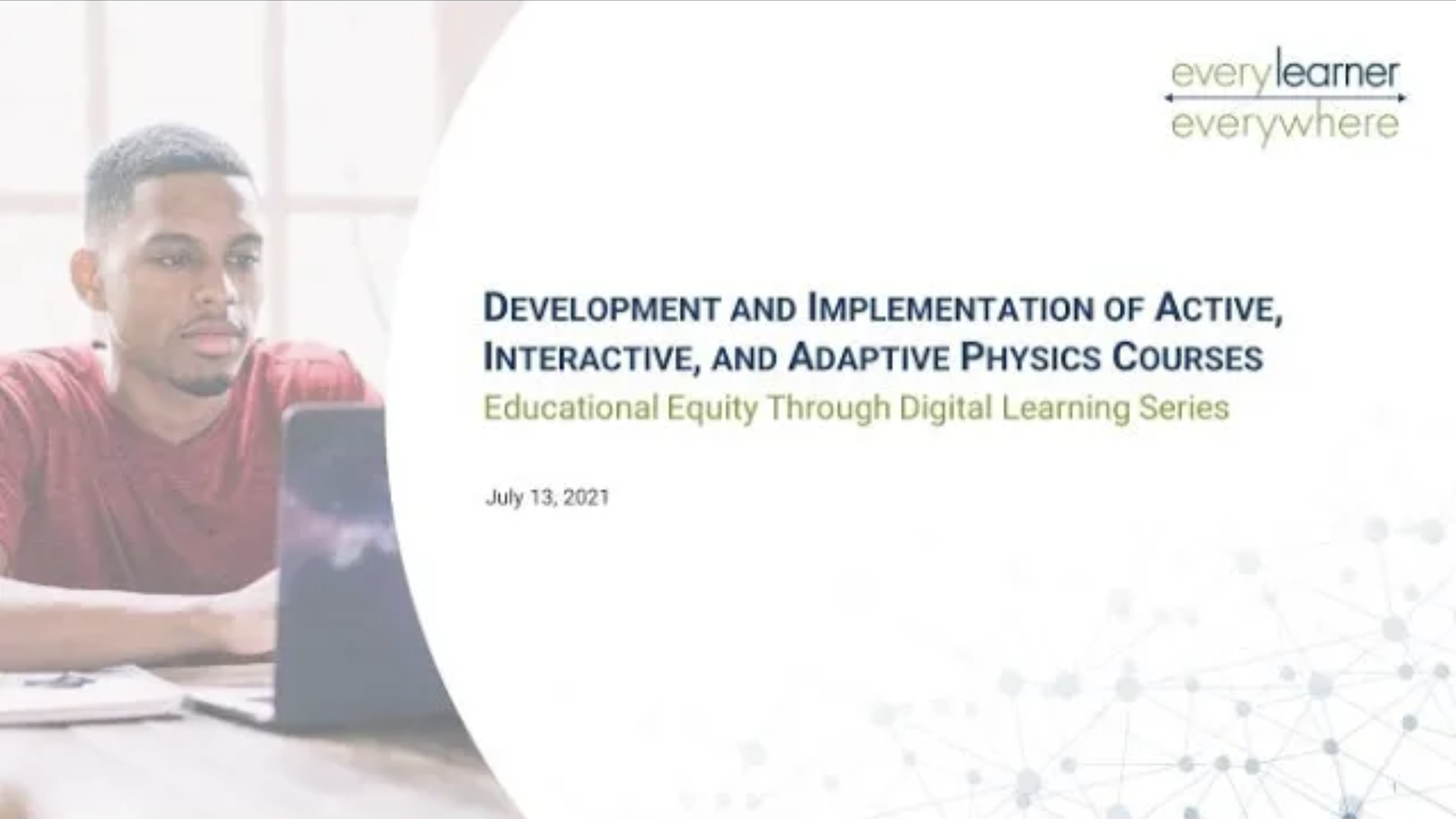
Faculty share experiences of developing and implementing active, interactive, and adaptive introductory physics courses. The design allows students to work at their own pace, choosing support items presented to them via the adaptive feature of the course, and explore concepts through simulations with activities.
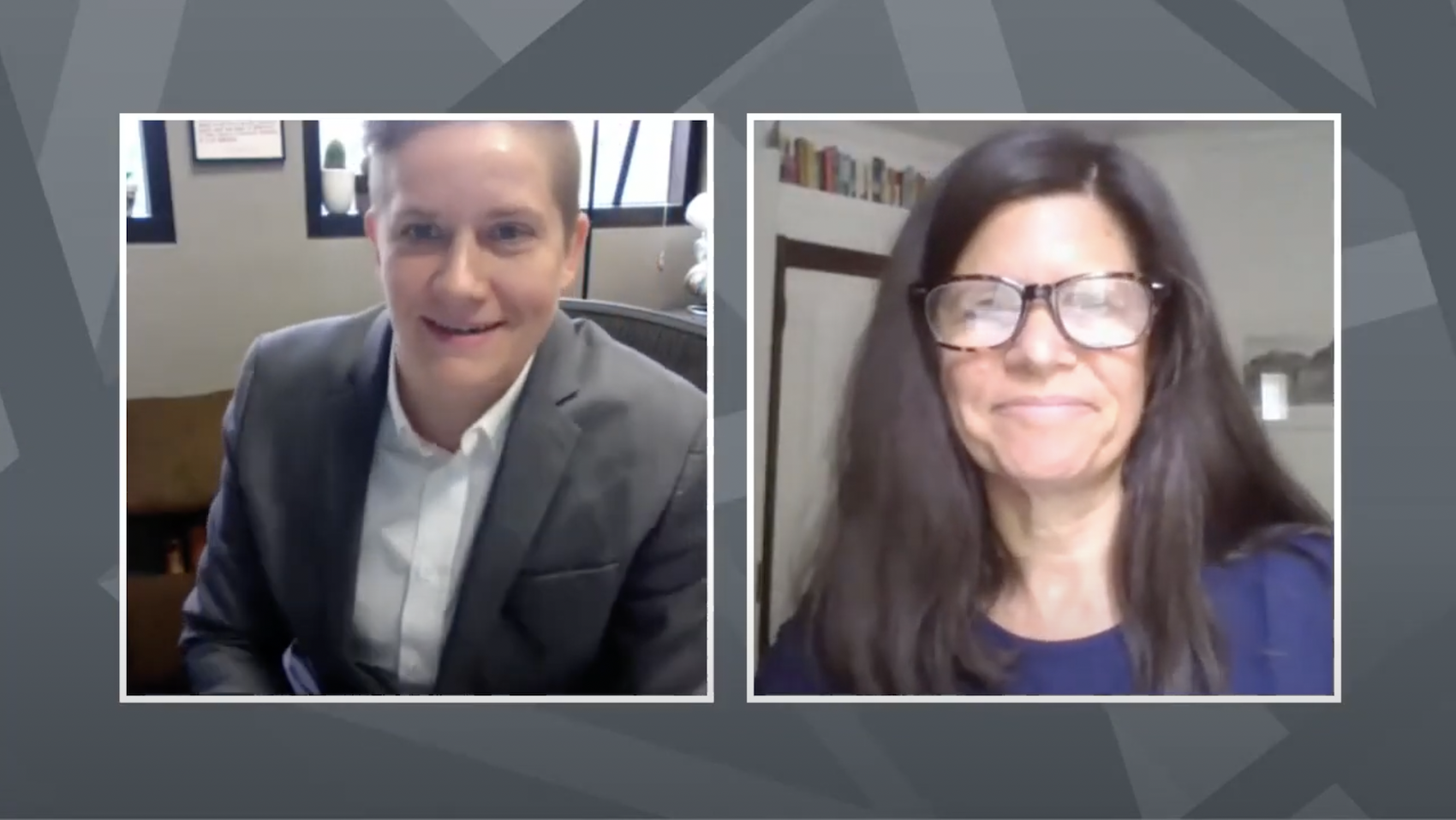
A discussion about teaching equitably with strategies to combat some of the inequities that exist within the field of English Composition.
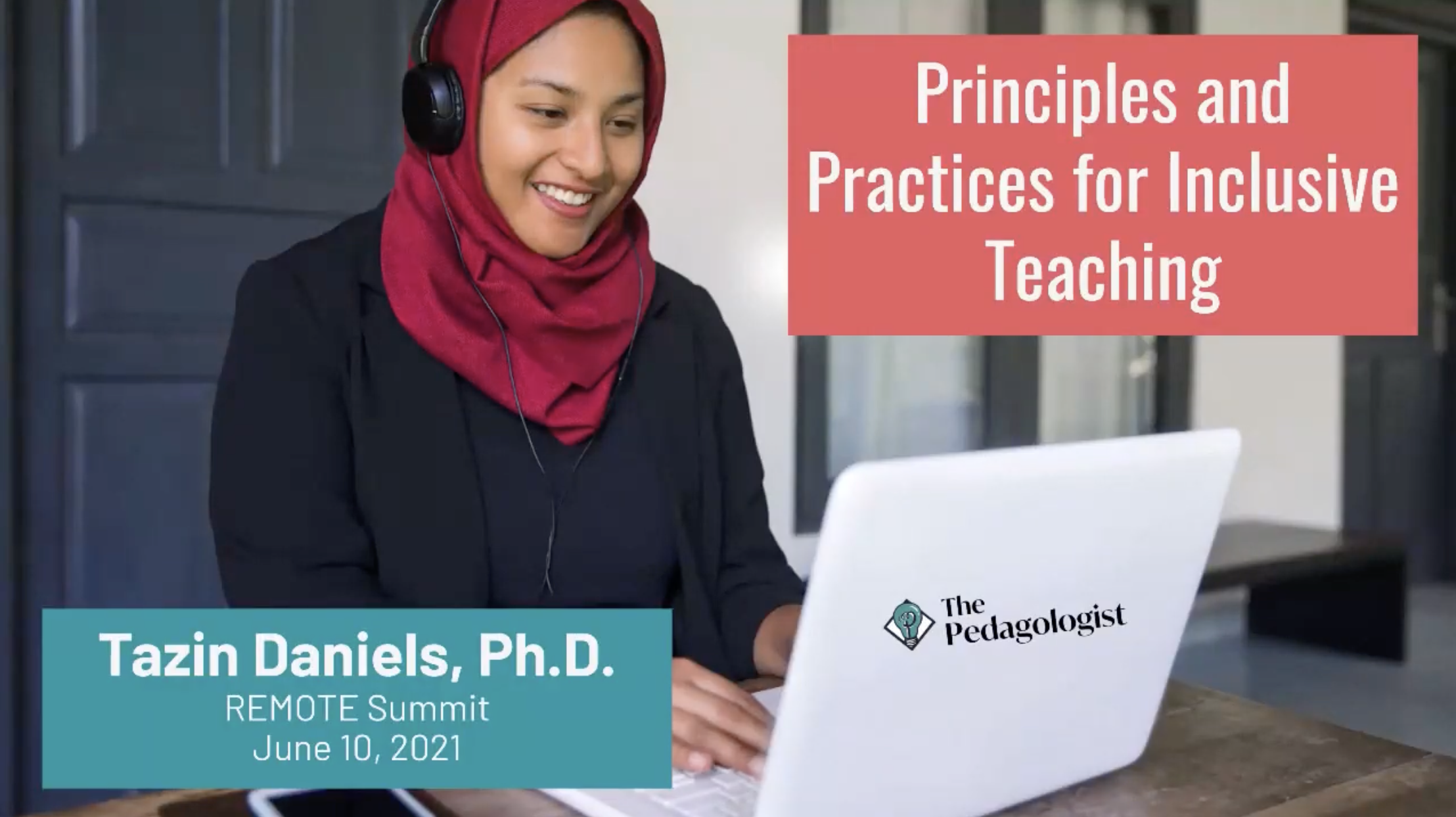
A discussion about effective practices to promote the key principles of inclusive teaching.
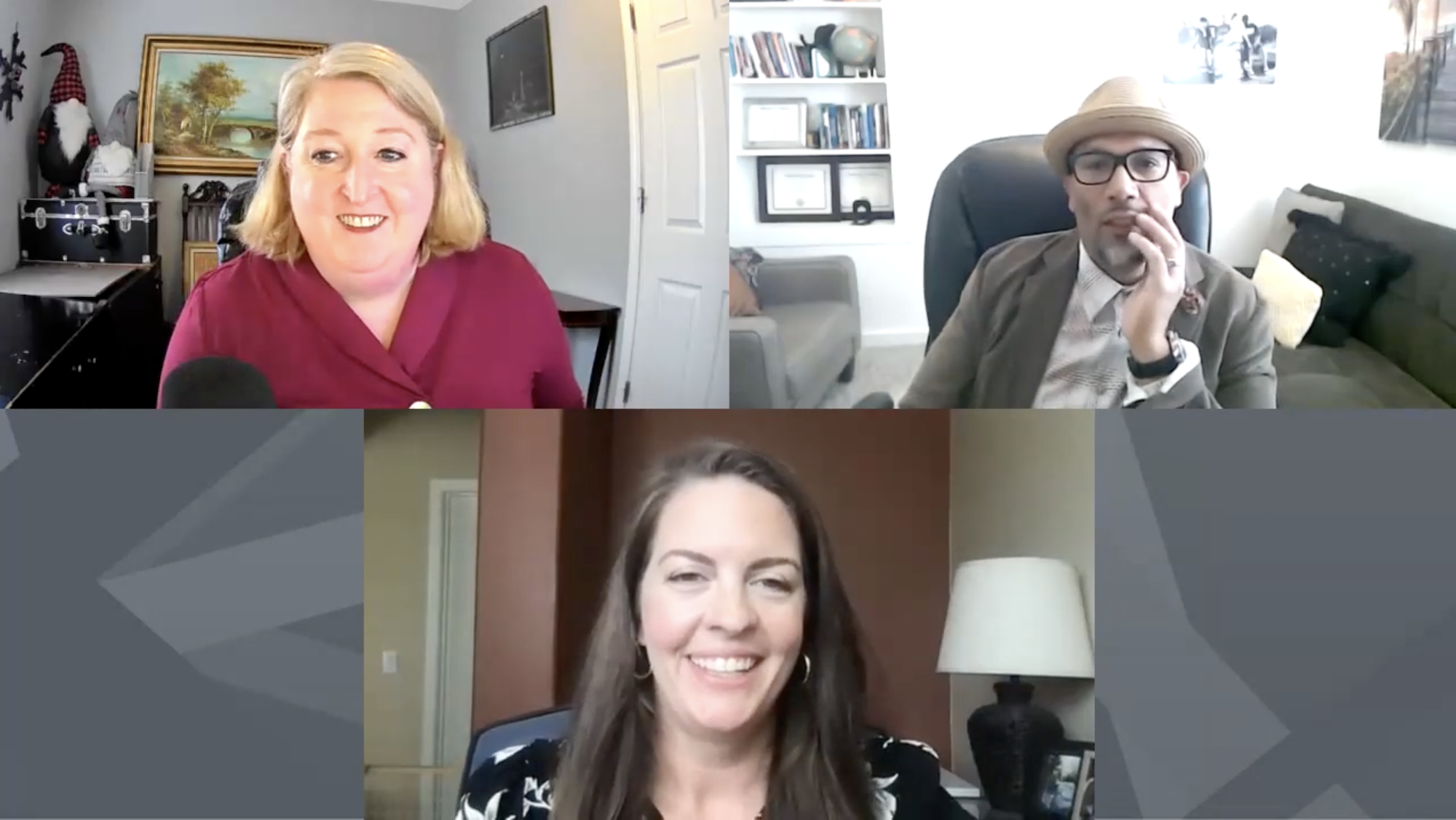
An overview of the tips and best practices for initiating an intentional movement to improve equity in gateway courses within your department.
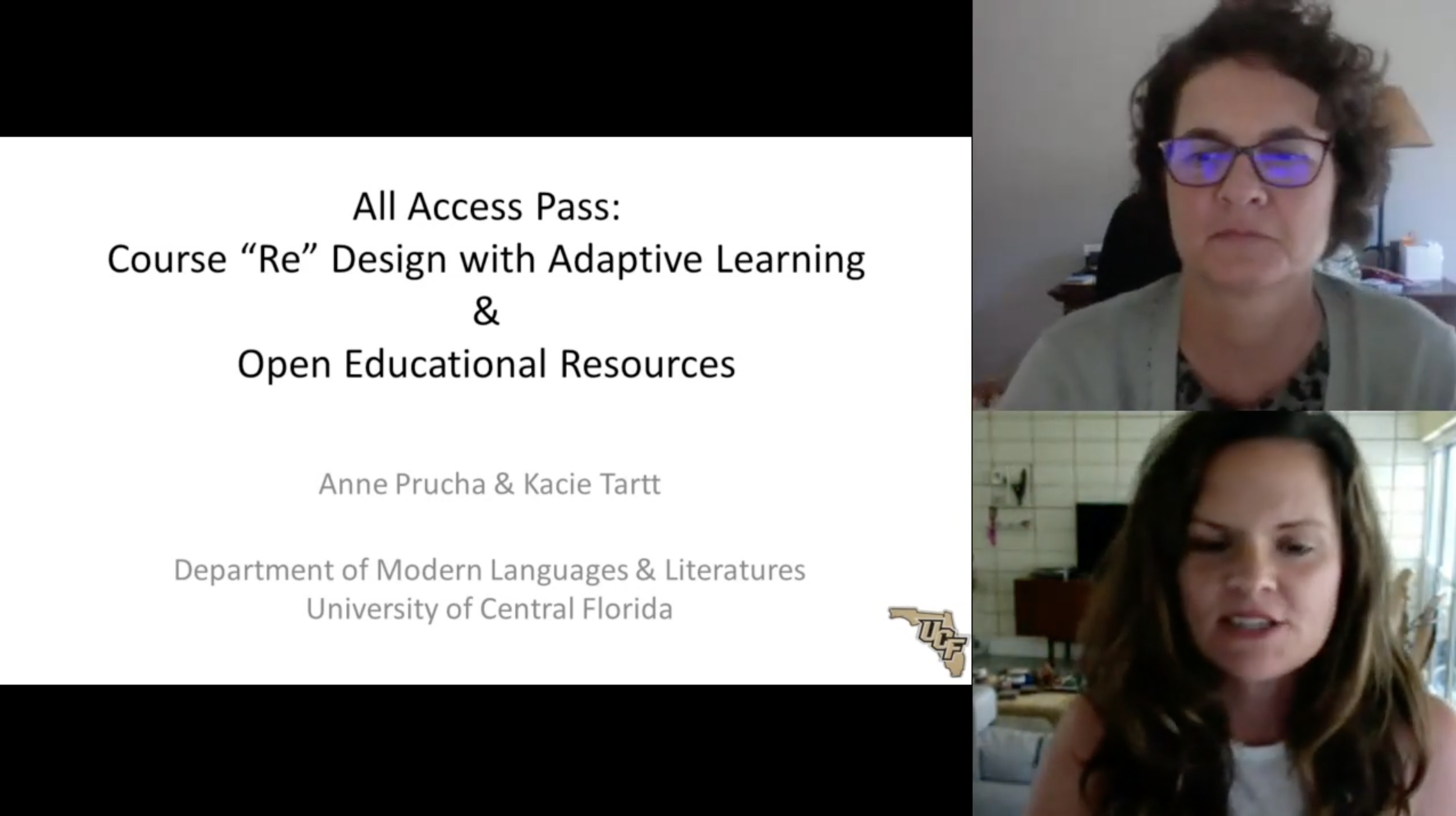
Learn about the work of faculty at the University of Central Florida who improved accessibility and equity through the adoption of adaptive learning practices.
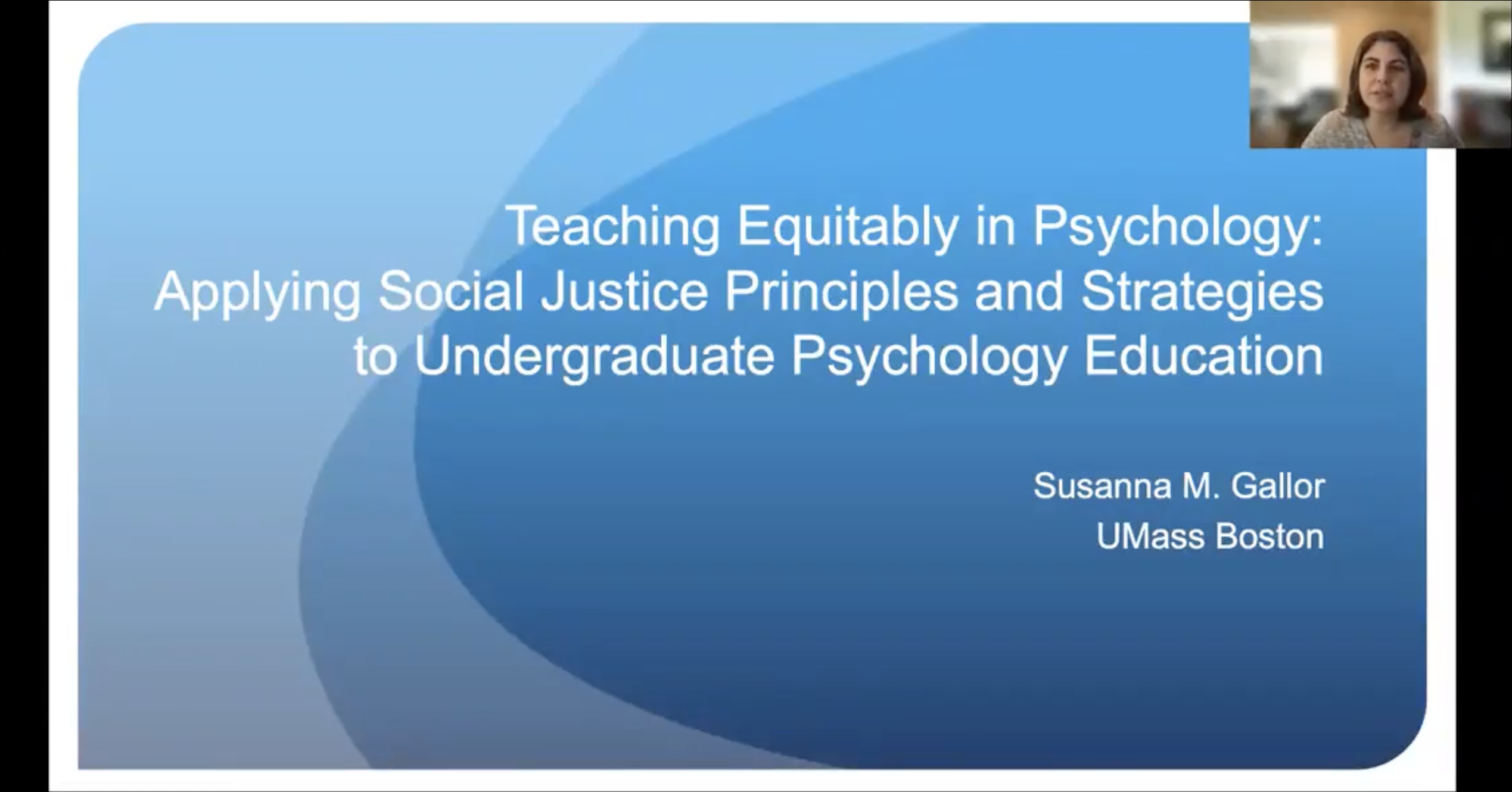
How to create an inclusive and equitable learning environment in psychology.
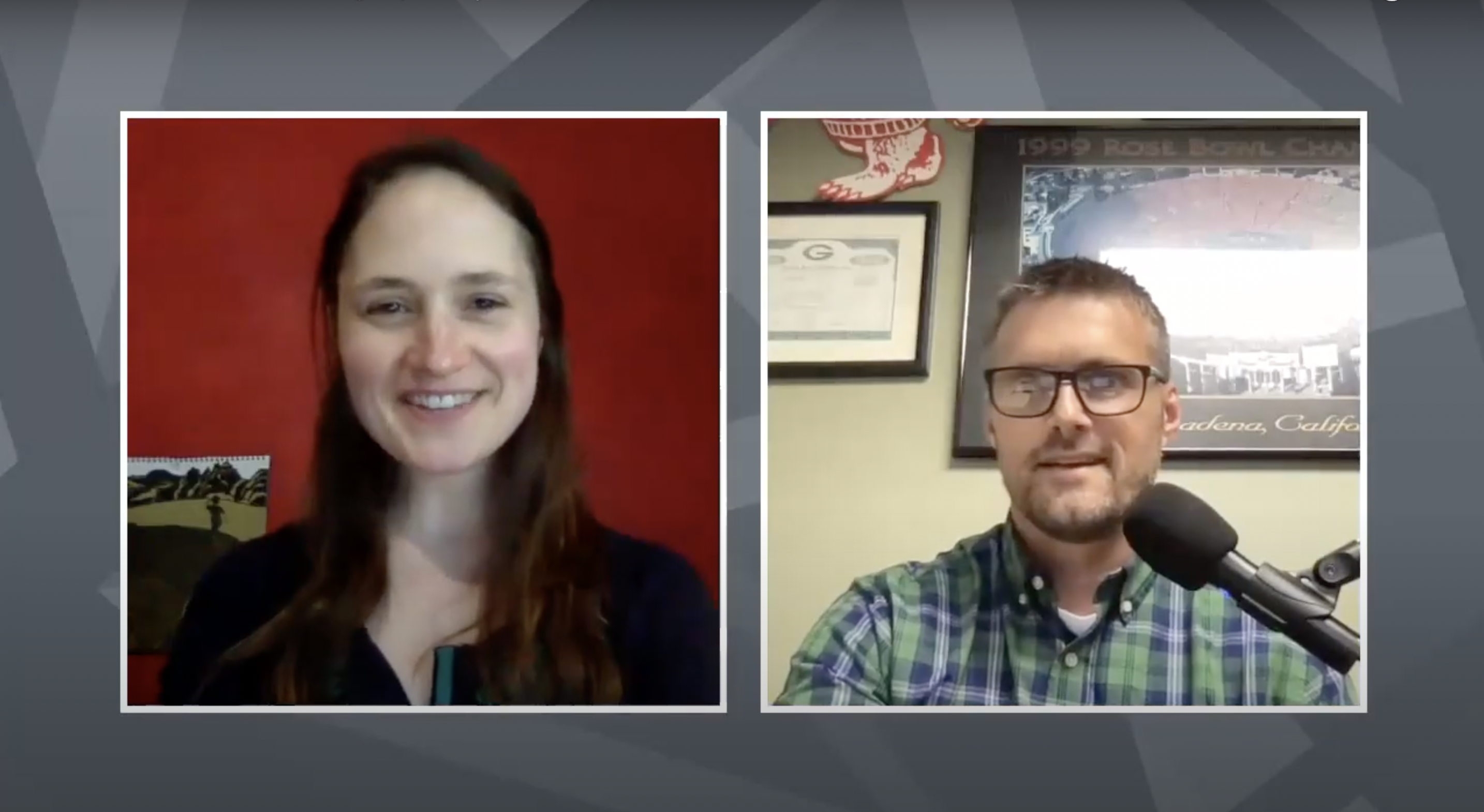
A discussion about strategies for teaching equitably in mathematics to combat some of the inequities that exist within the field.
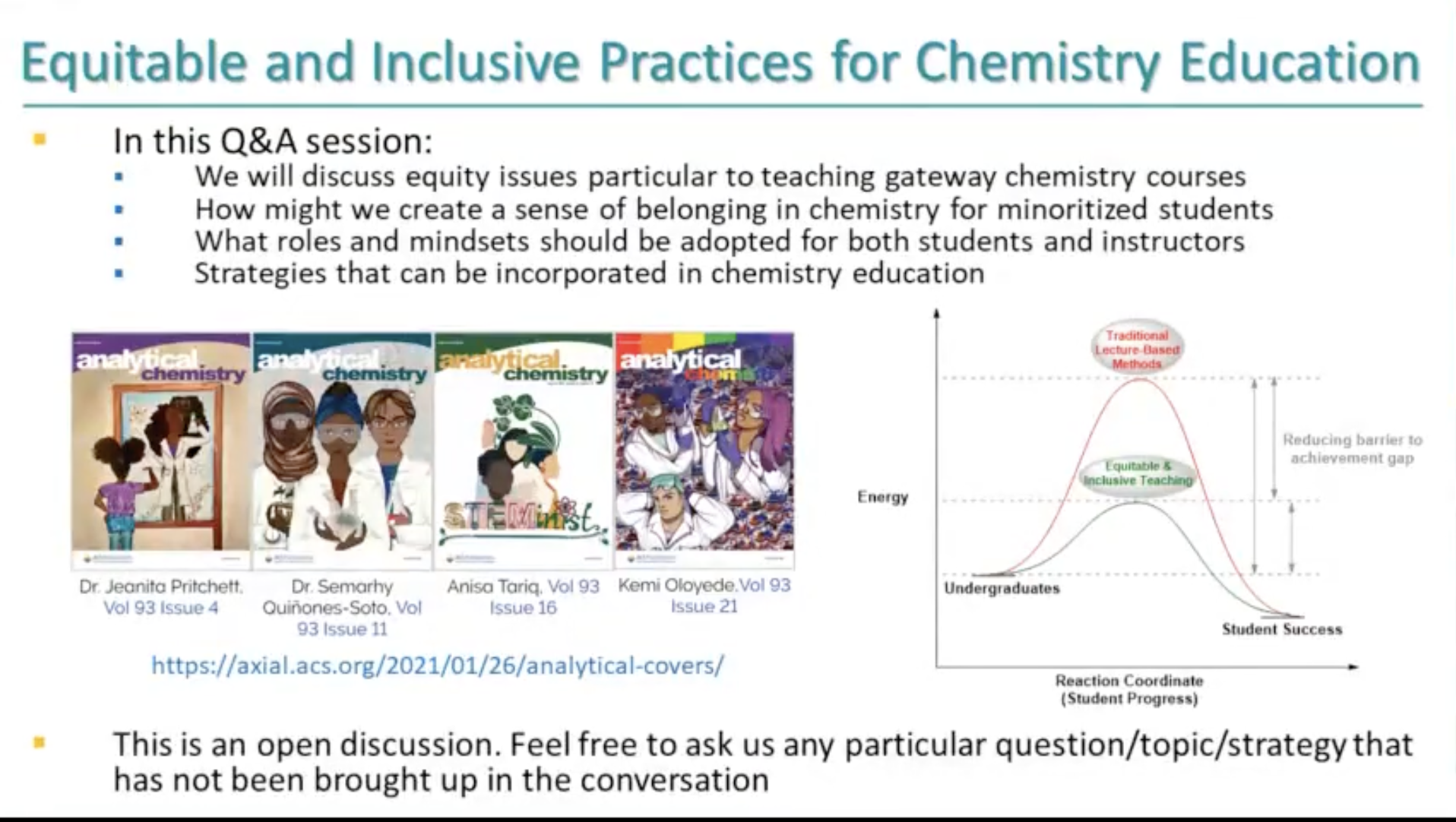
A discussion about equitable and inclusive practices for chemistry education with strategies to combat some of the inequities that exist within the field.
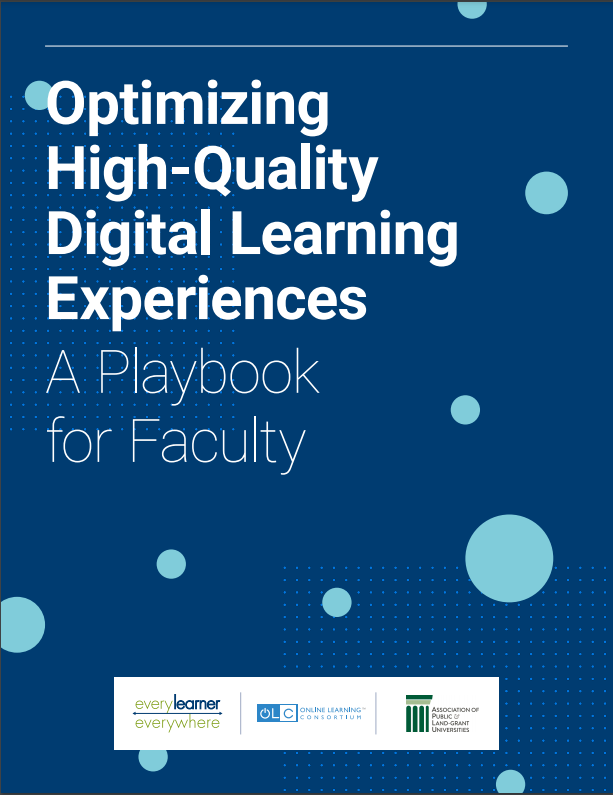
By integrating teaching and design principles, this guide assists faculty in positively impacting student learning, especially for students who are minoritized because of race, gender, disability, or socioeconomic status.
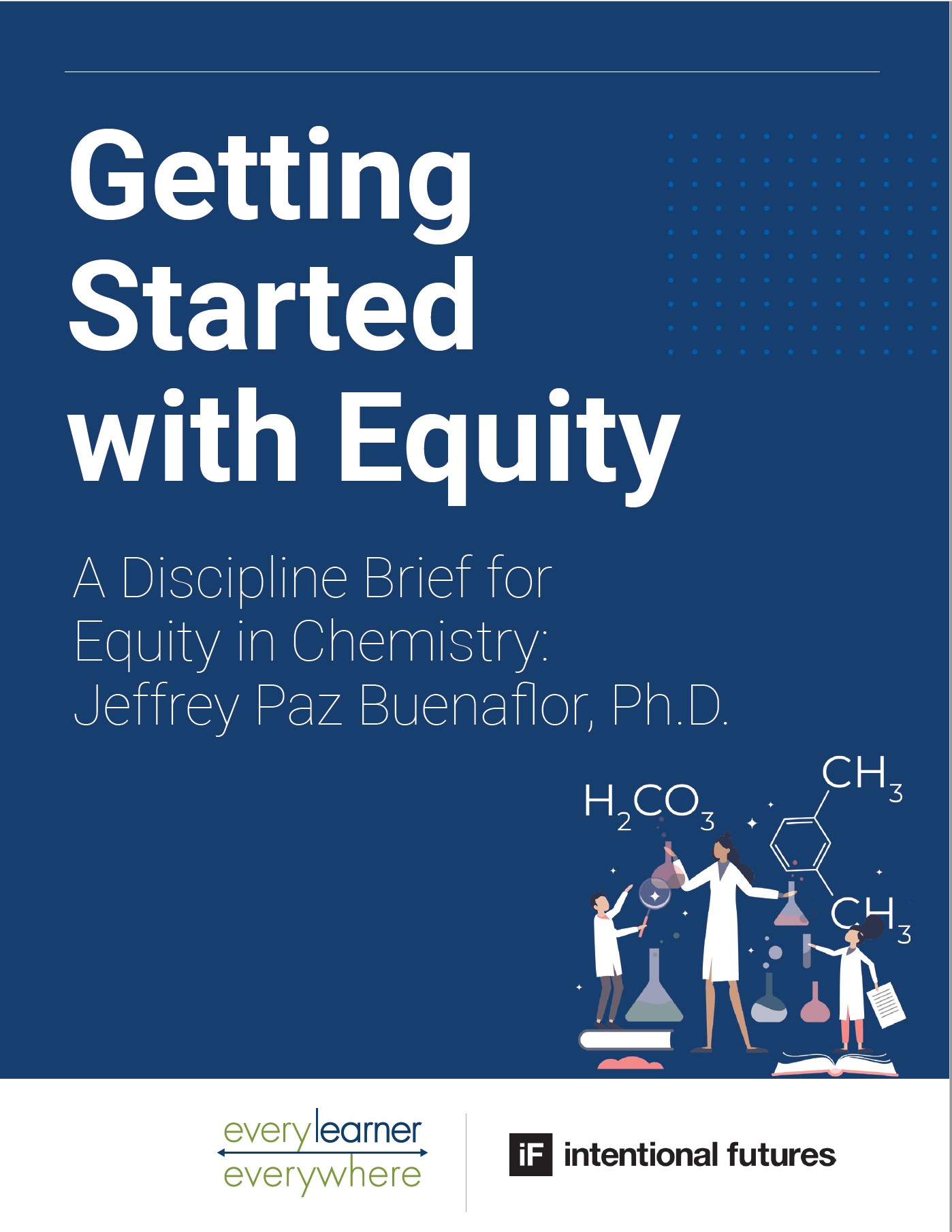
A discipline brief for equity in chemistry
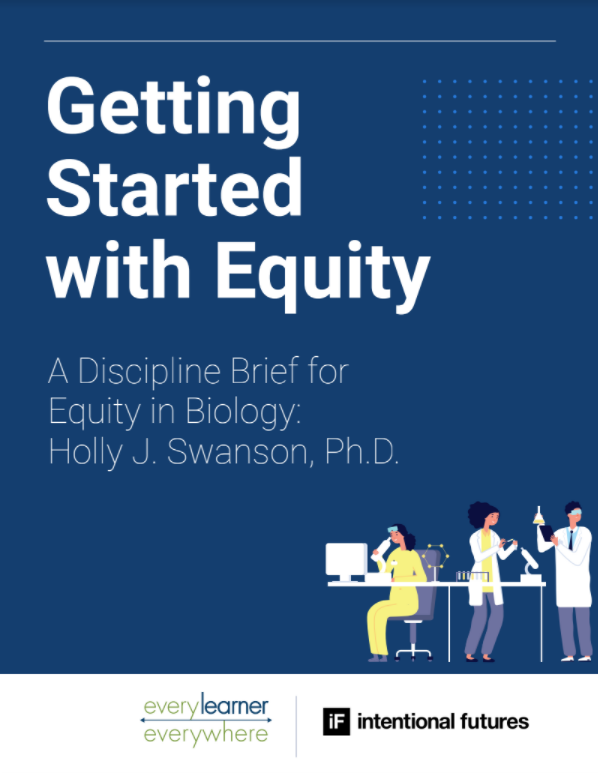
This brief explores how pedagogical, content, and mindset changes can reduce obstacles for minoritized students and support equity in biology.
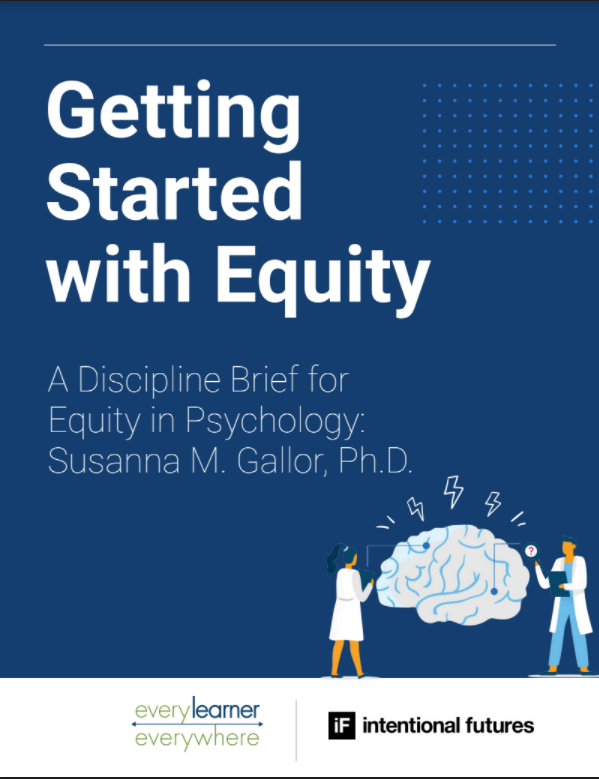
This brief provides an overview of equity issues and solutions in psychology courses.

This brief shares how asset-based instruction, fostering student belonging, active learning, and flexible and differentiated coursework can reduce equity gaps in chemistry.
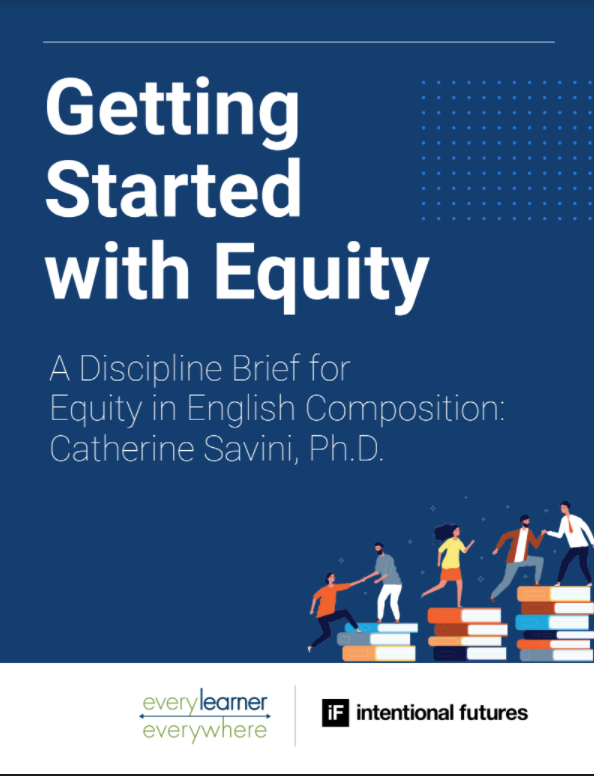
This brief explores how adjusting pedagogy, and eliminating linguistic bias can support equity in English composition courses.

This brief recommends resources to inform teaching to account for linguistic diversity and ability and promote a more equitable academic environment for students in English composition courses.
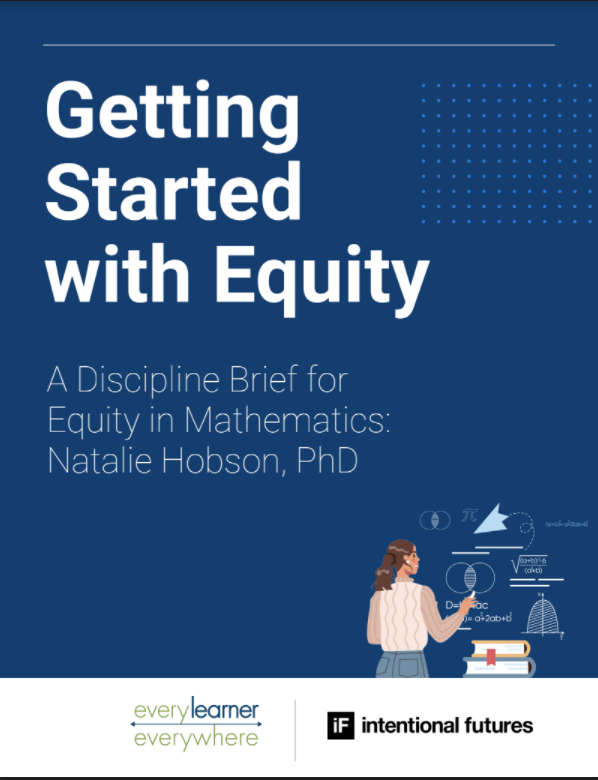
This brief suggests diverse pathways, student-centeredness, and bias training to close equity gaps in mathematics courses.
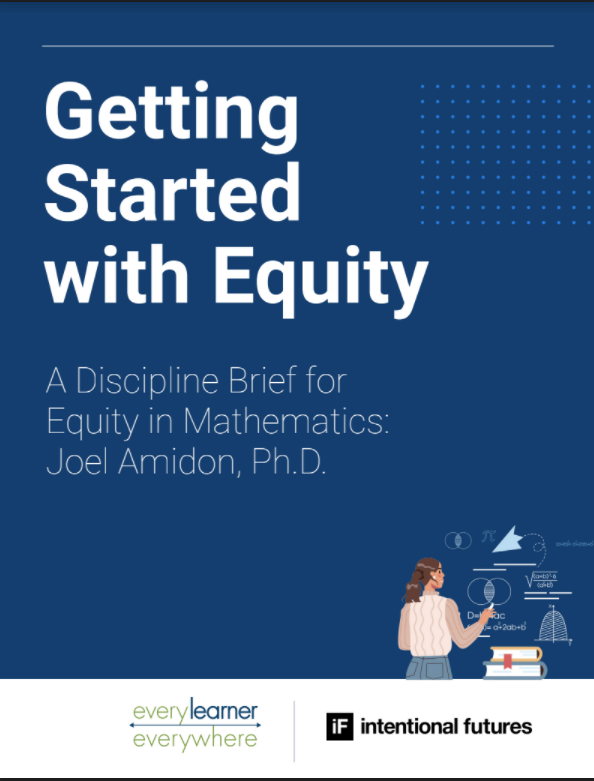
Joel Amidon is on a mission is to lead people to love others through teaching, providing solutions for equity in math courses.
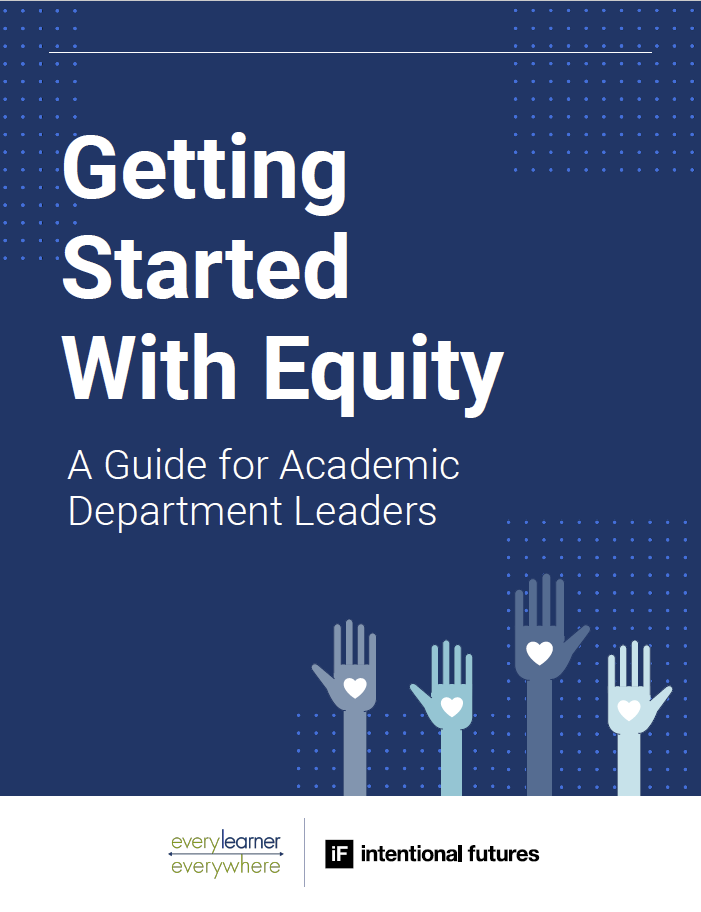
Getting Started With Equity: A Guide for Academic Department Leaders has a very specific purpose, which is to serve as a first step for department chairs to develop and curate an educational environment that is simultaneously justice-centered and equity-advancing.
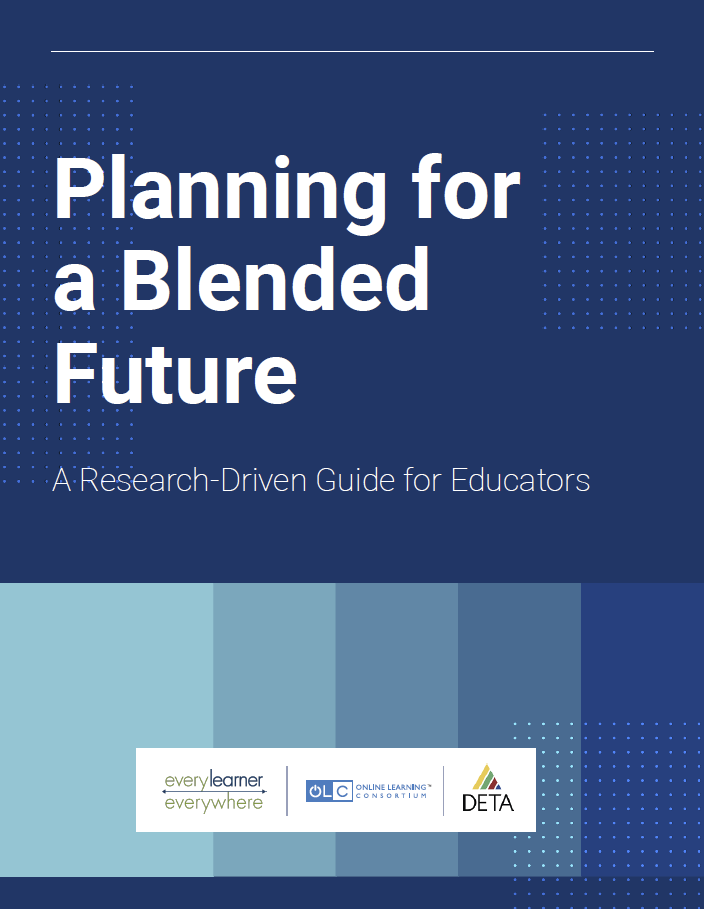
This guide moves beyond getting started with blended learning to help educators realize the best of online and onsite instruction and implement research-driven techniques to positively influence student outcomes.
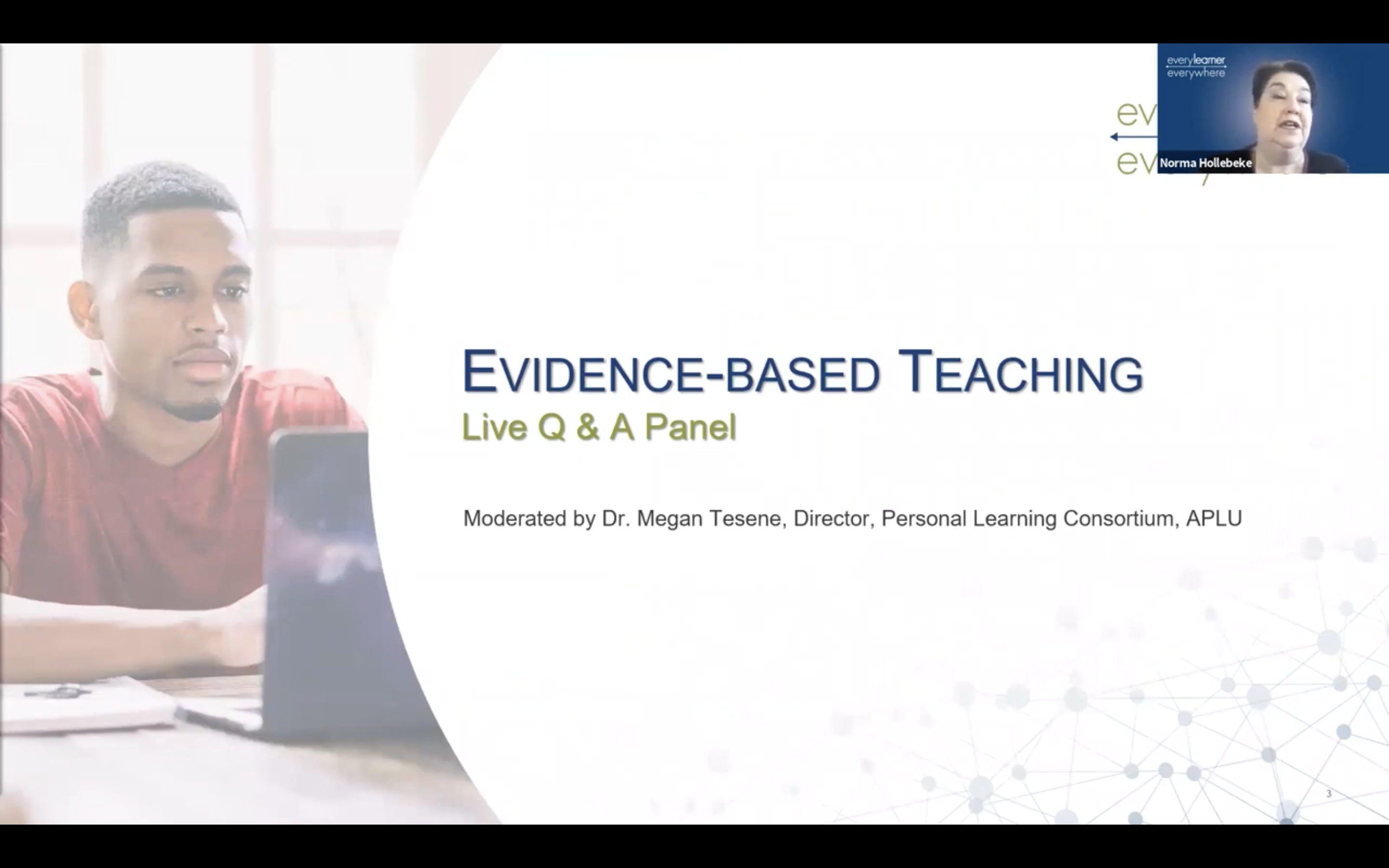
A panel discussion about Evidence-based teaching strategies that center equity in online and hybrid modalities.
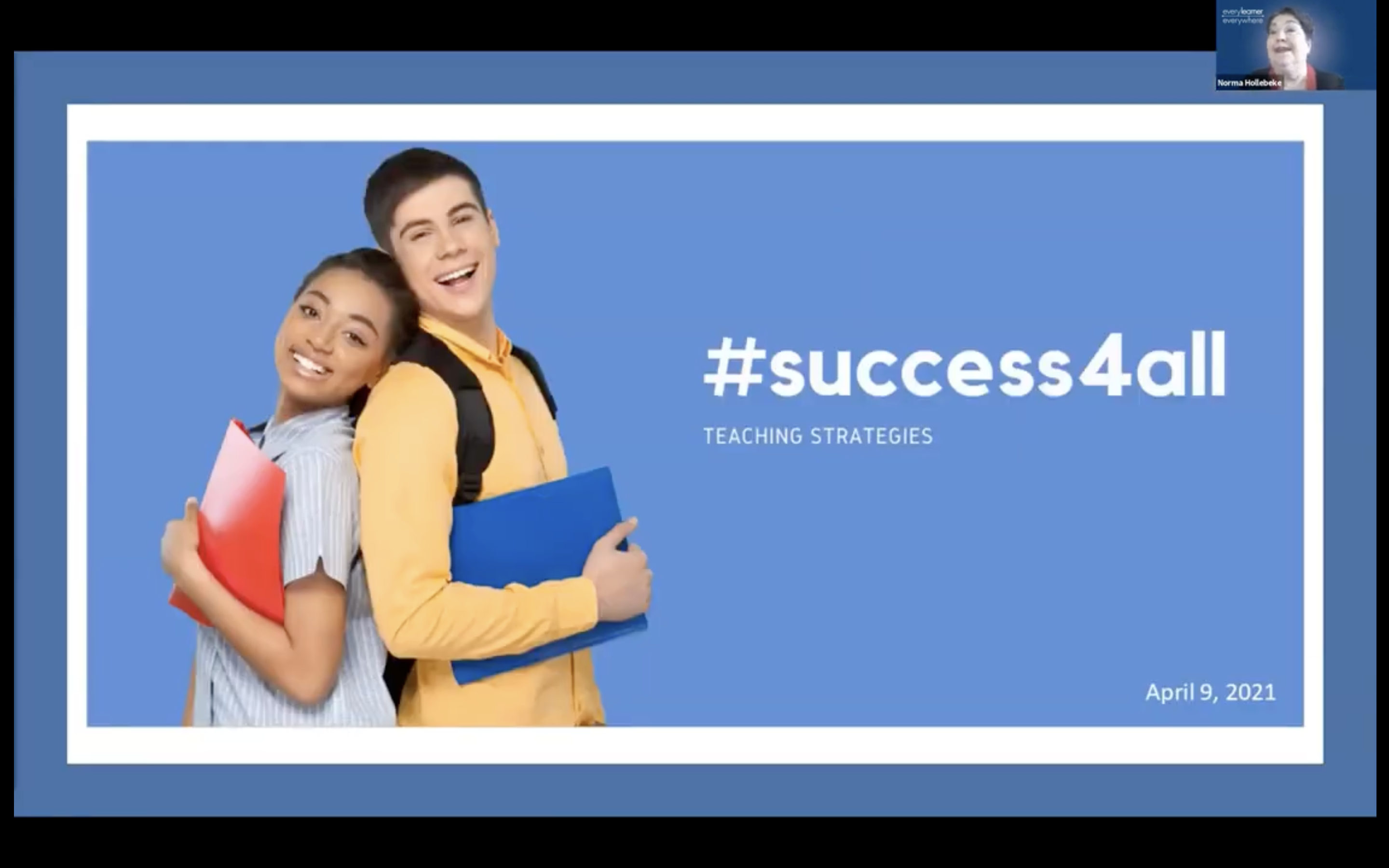
In this webinar, learn simple teaching strategies to help students take charge of their learning and ensure all students master content.
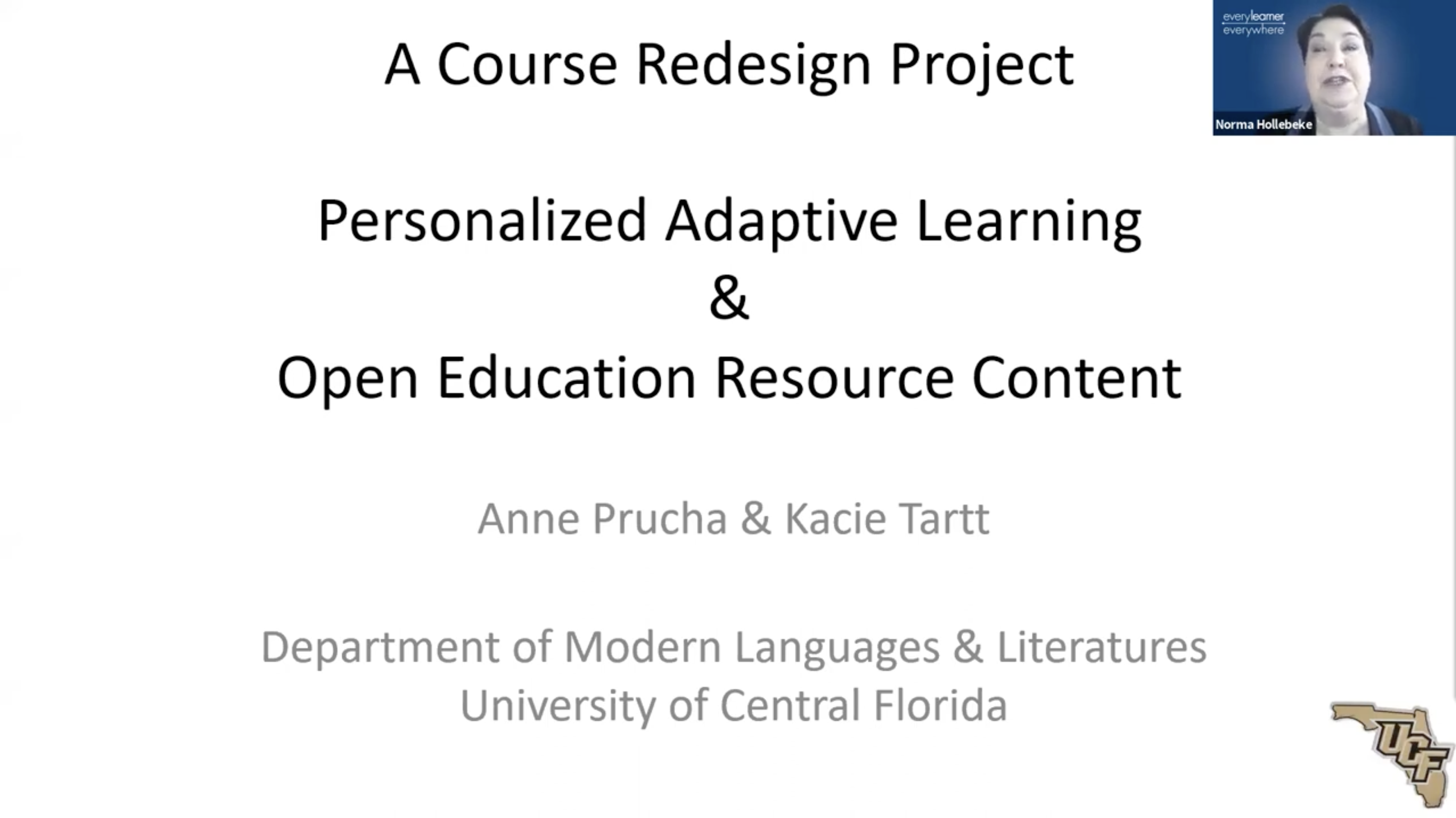
Instructors share their experiences in redesigning Elementary Spanish through a university initiative focused on increasing student success in gateway courses.
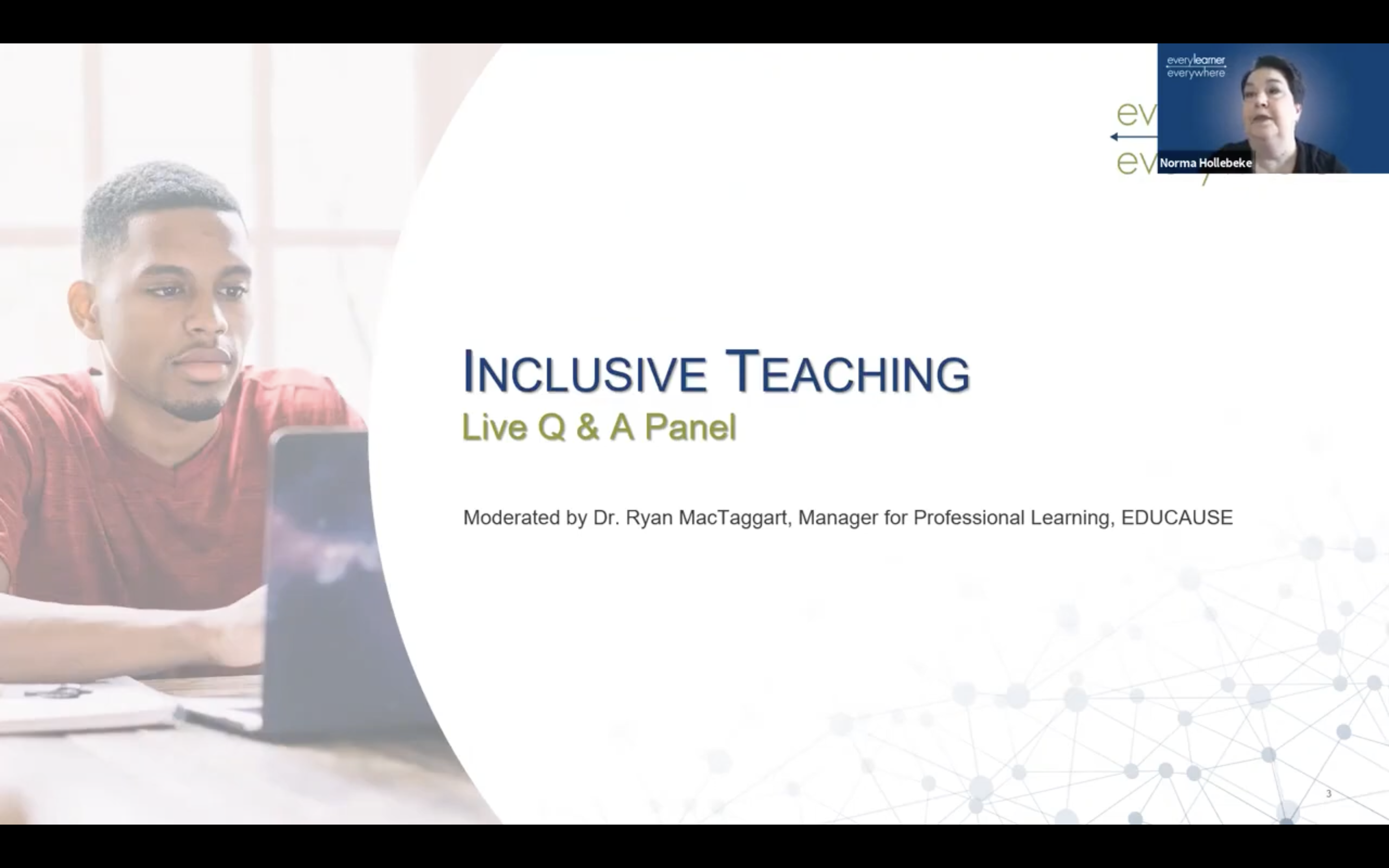
In this live Q&A panel, participants engage with Every Learner Everywhere Expert Network professionals to discuss equitable and inclusive teaching practices and digital learning to foster student-centered learning.

This session facilitates participant discussion on how to connect local environmental and climate justice issues to STEM concepts.
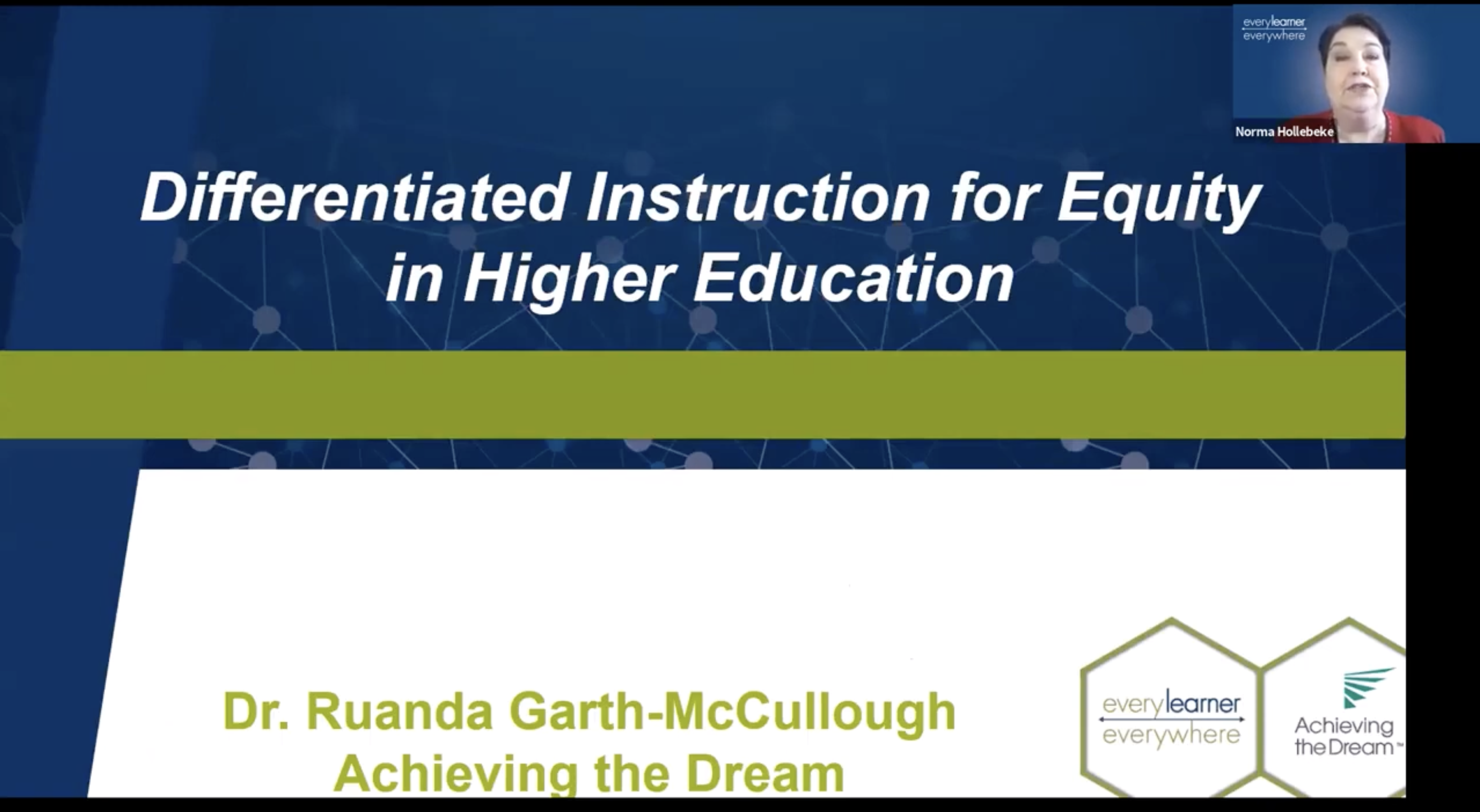
An overview of strategies and tools that engage students’ prior knowledge and supports their performance by differentiating the content, process and assessments.
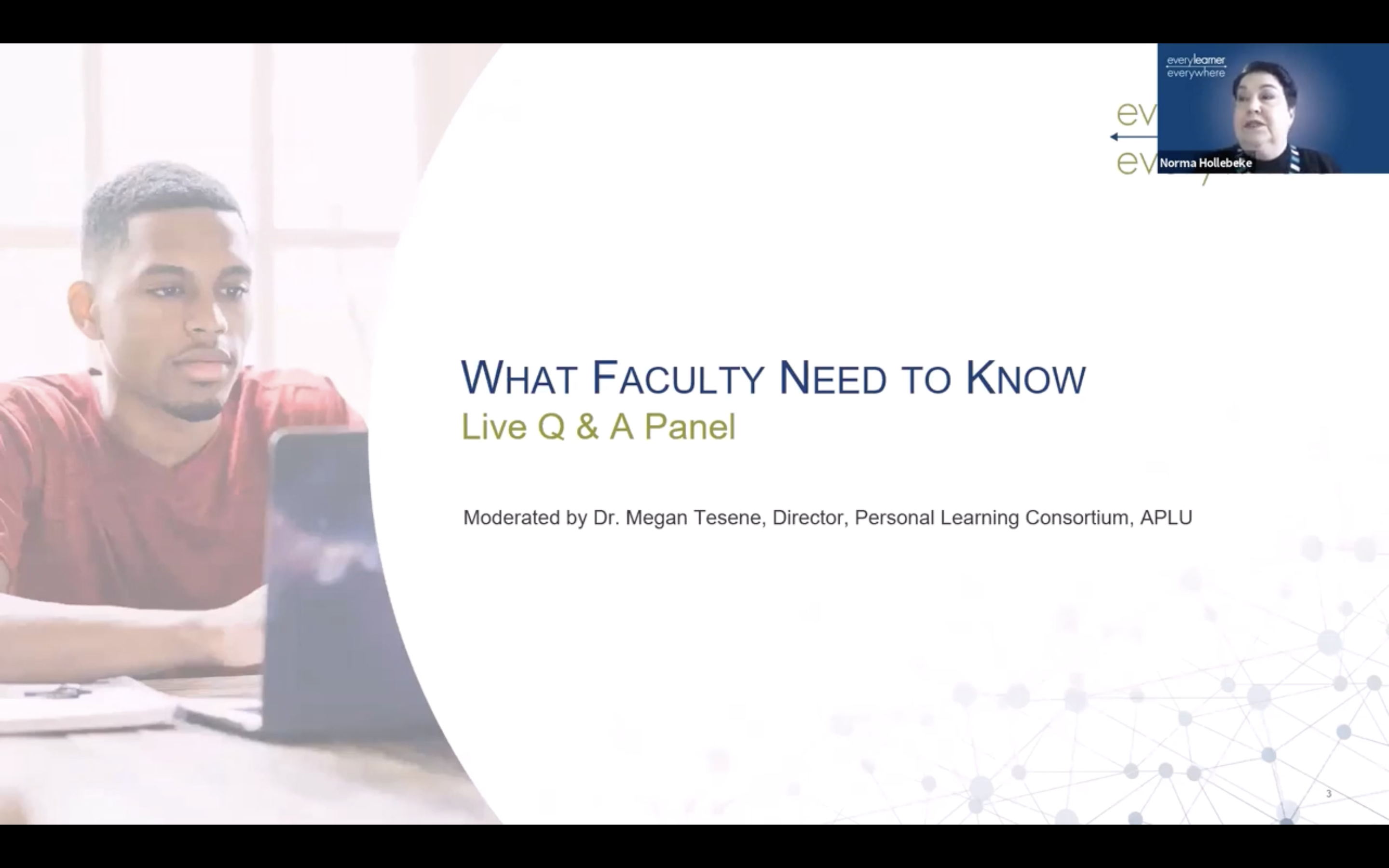
In this live Q&A panel, participants get answers to their remote teaching questions.
A virtual educator professional development session led by Cherise McBride with reflection on the urgency of humanization in online learning environments and examples from practice.
A brief exploration on how faculty can position cultural knowledge and centering identity as a cognitive tool.
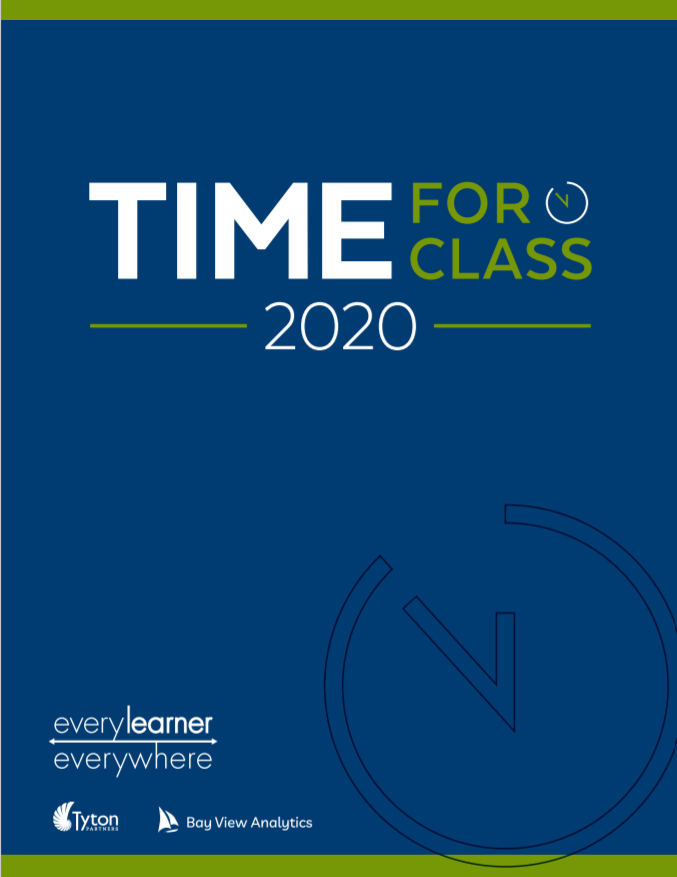
This survey is designed to help higher education stakeholders gain an understanding of digital learning tools for increasing affordability and accessibility for students.
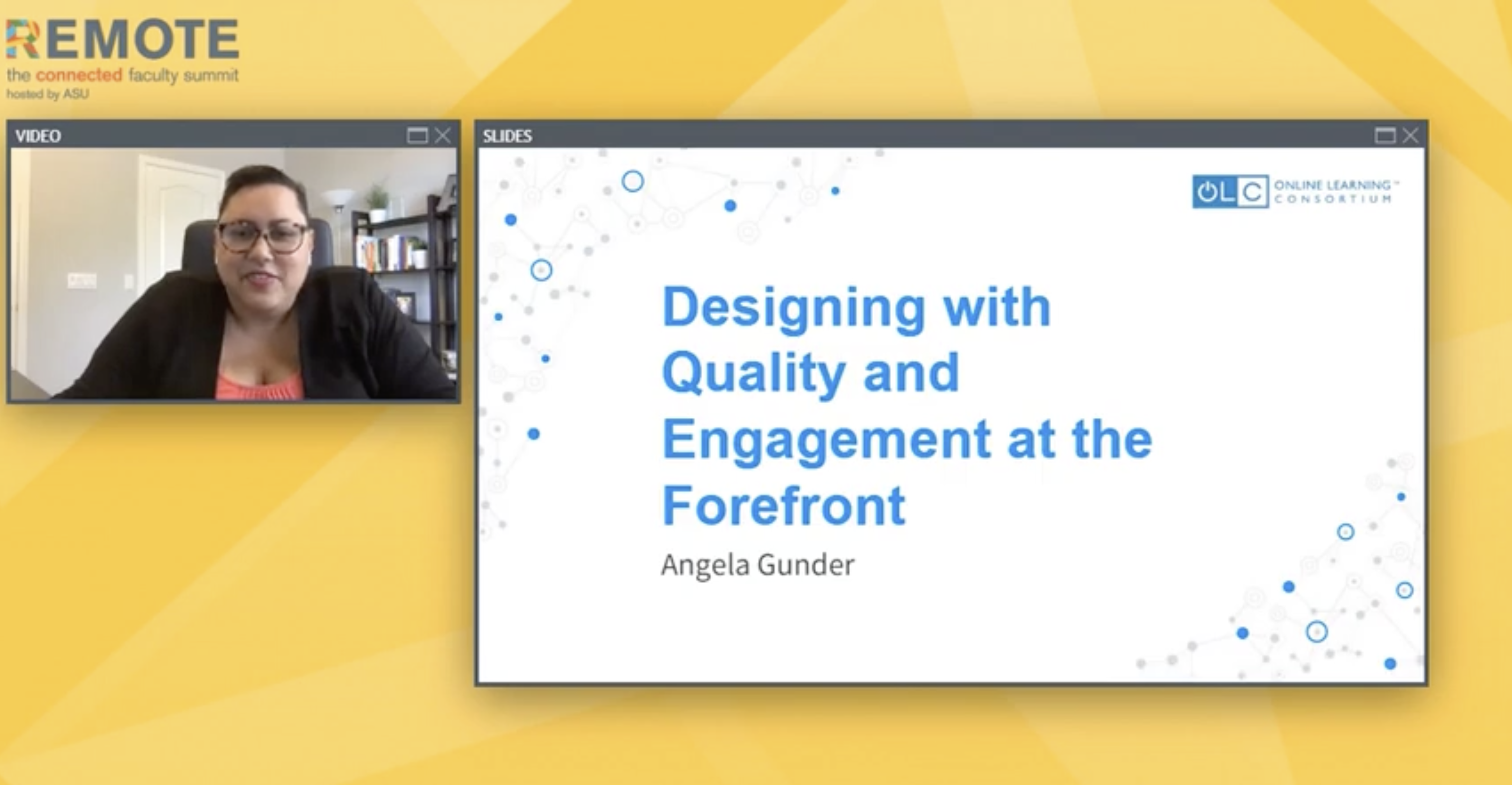
Angela Gunder of OLC and Alisha Mendez of EdPlus ASU discuss equitable practices and outcomes-based approaches to designing with quality instruction online.
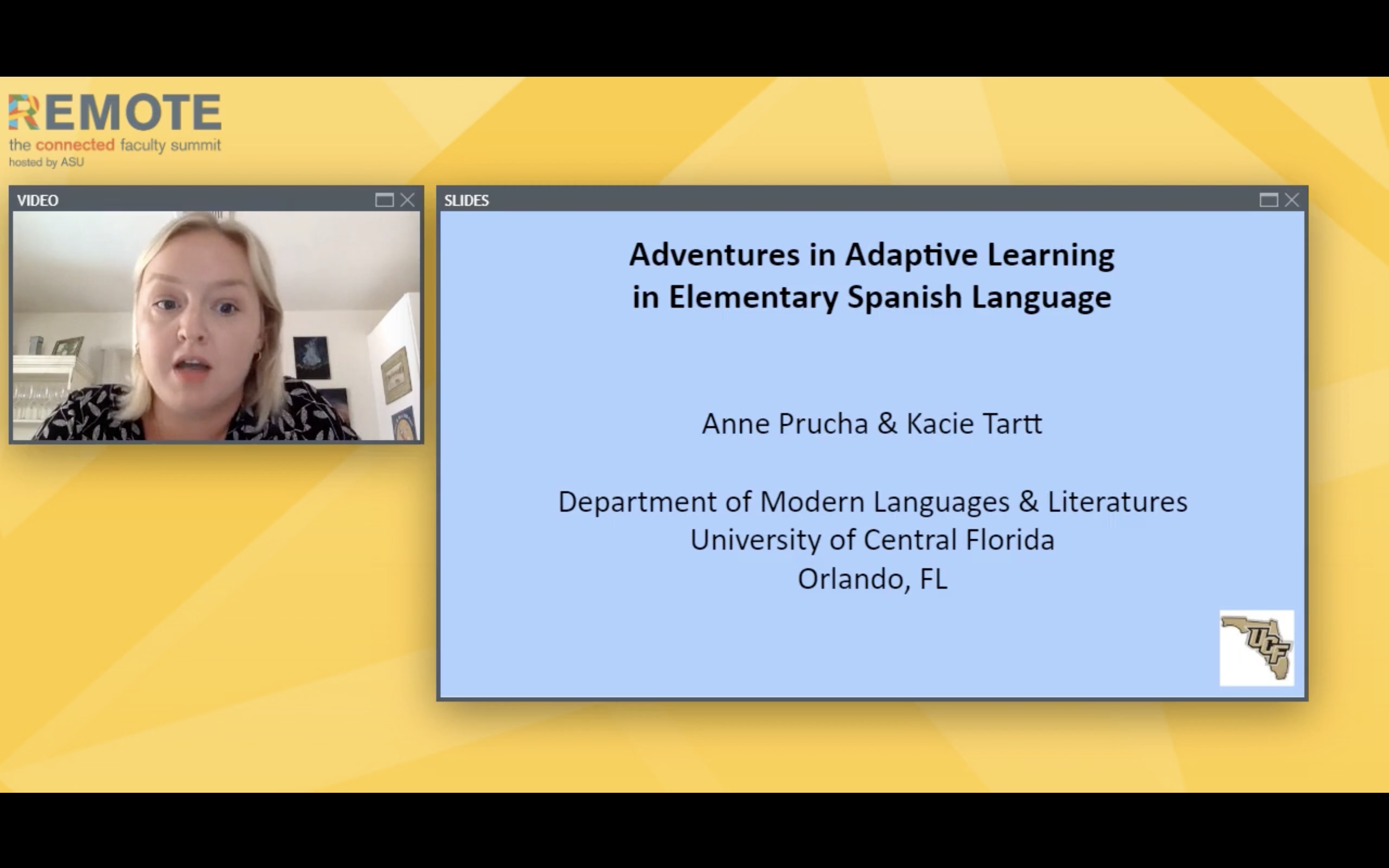
Instructors at UCF share their course redesign experience after adopting adaptive learning in a Spanish language course.
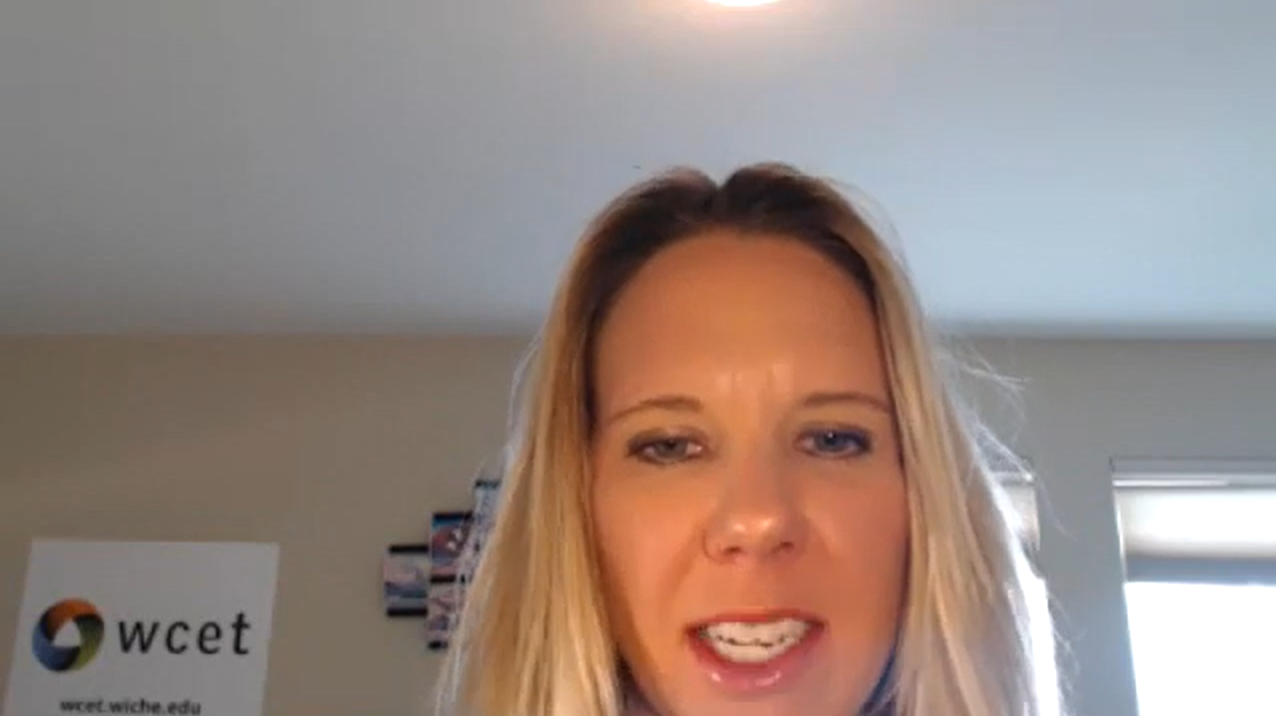
This webinar conversation highlights how students can navigate an unknown fall academic year and how administration can support students.
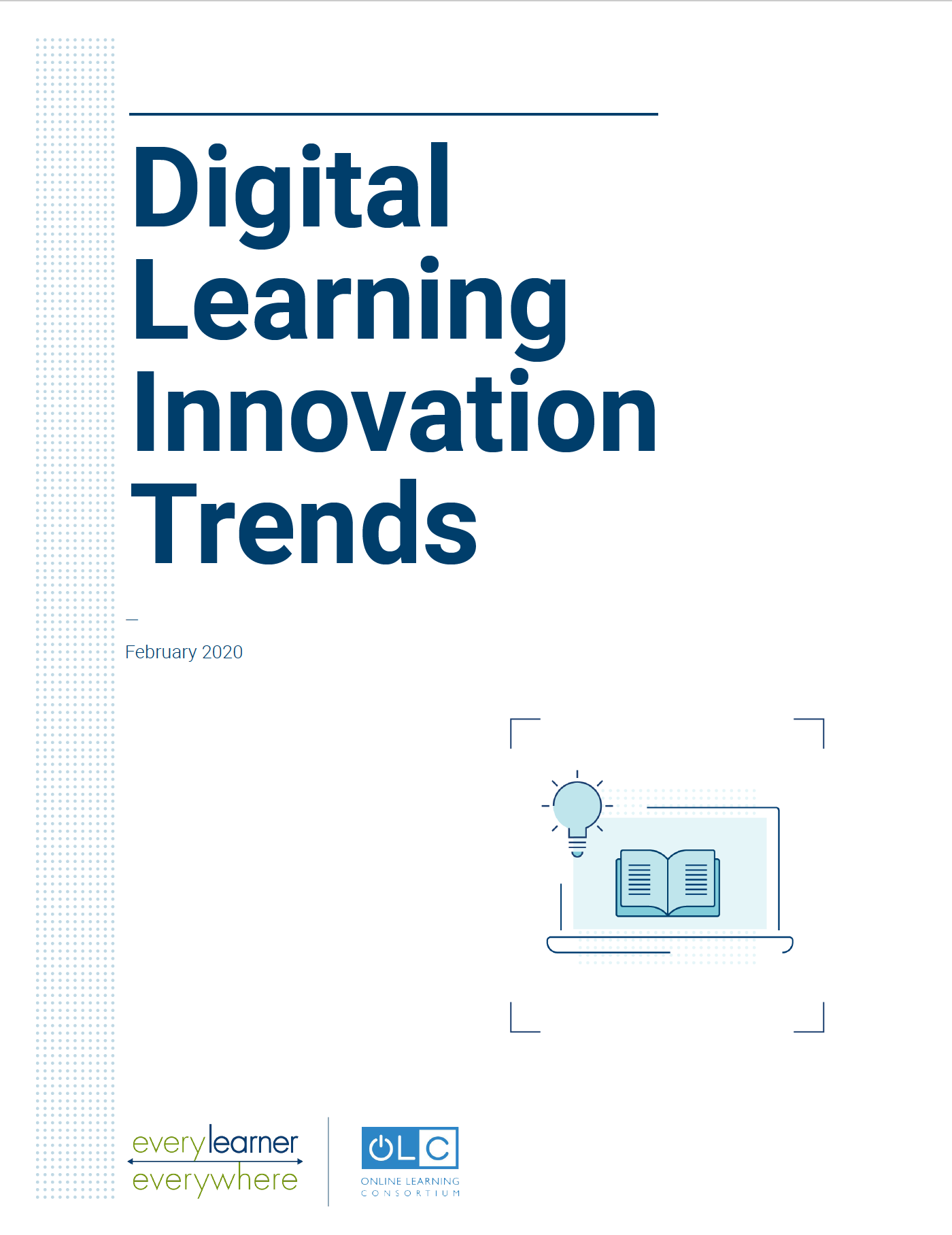
This analysis identified seven major and three secondary trends in digital learning innovation. The goal of adaptive learning and OER implementations is to advance institutional efforts in providing access and quality while improving student success.
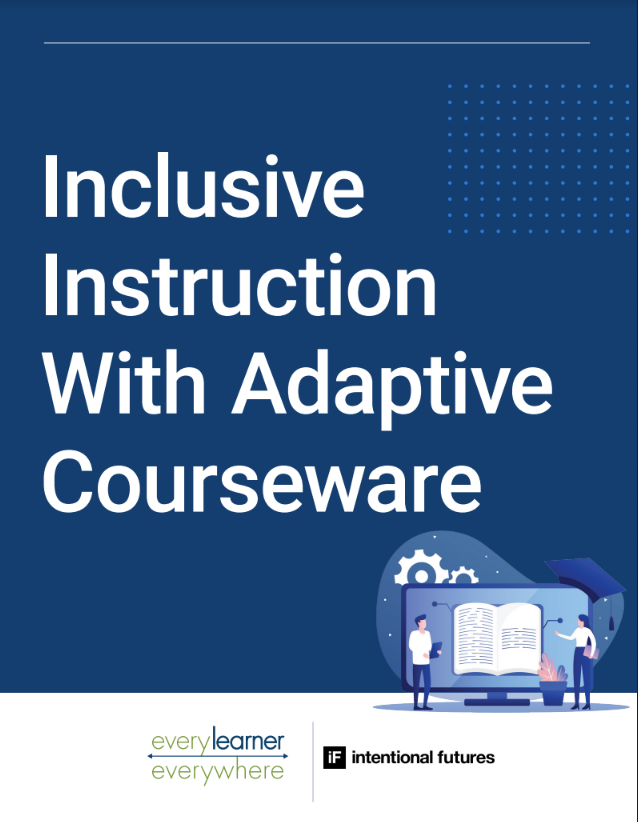
A summary of approaches to developing and evaluating accessible and inclusive courseware



































































